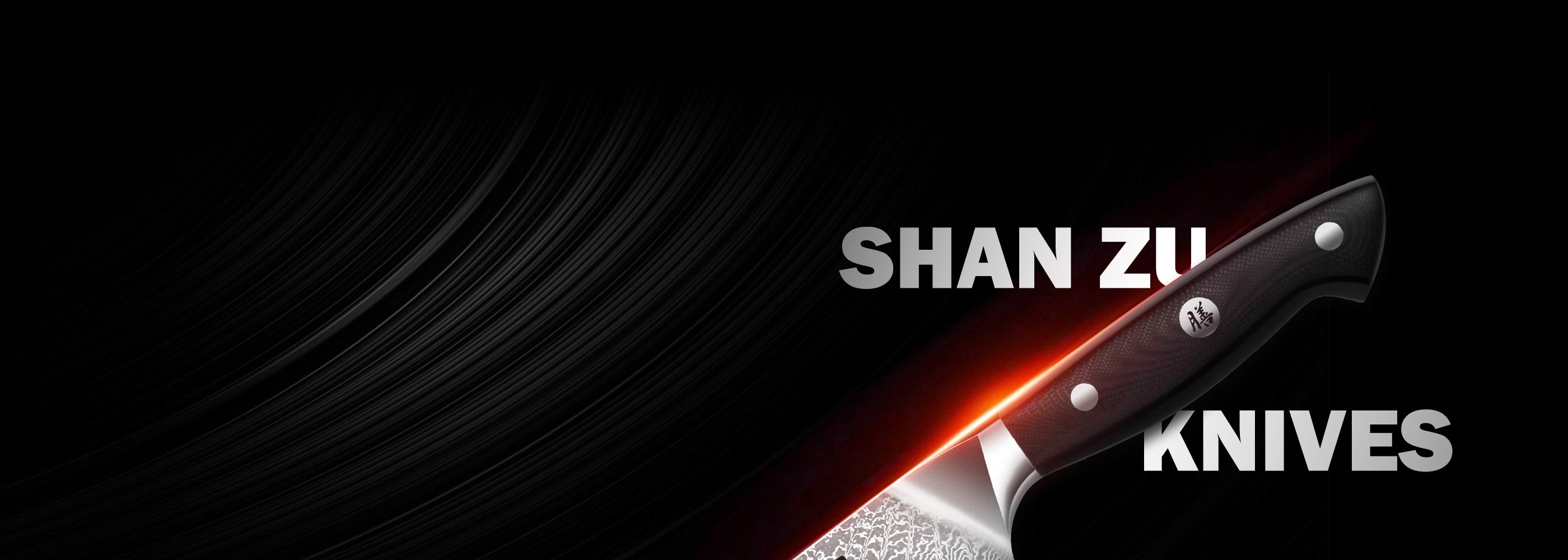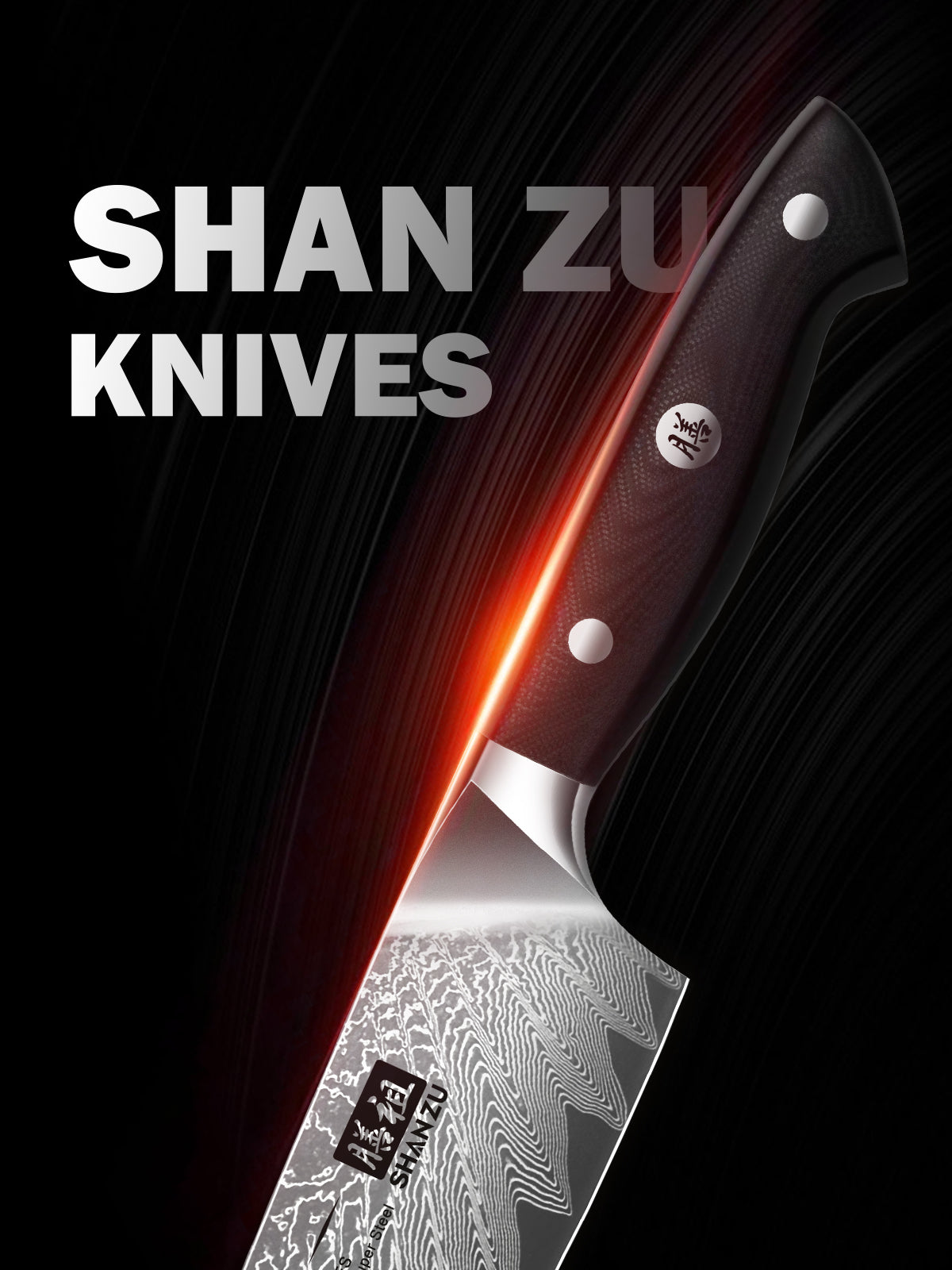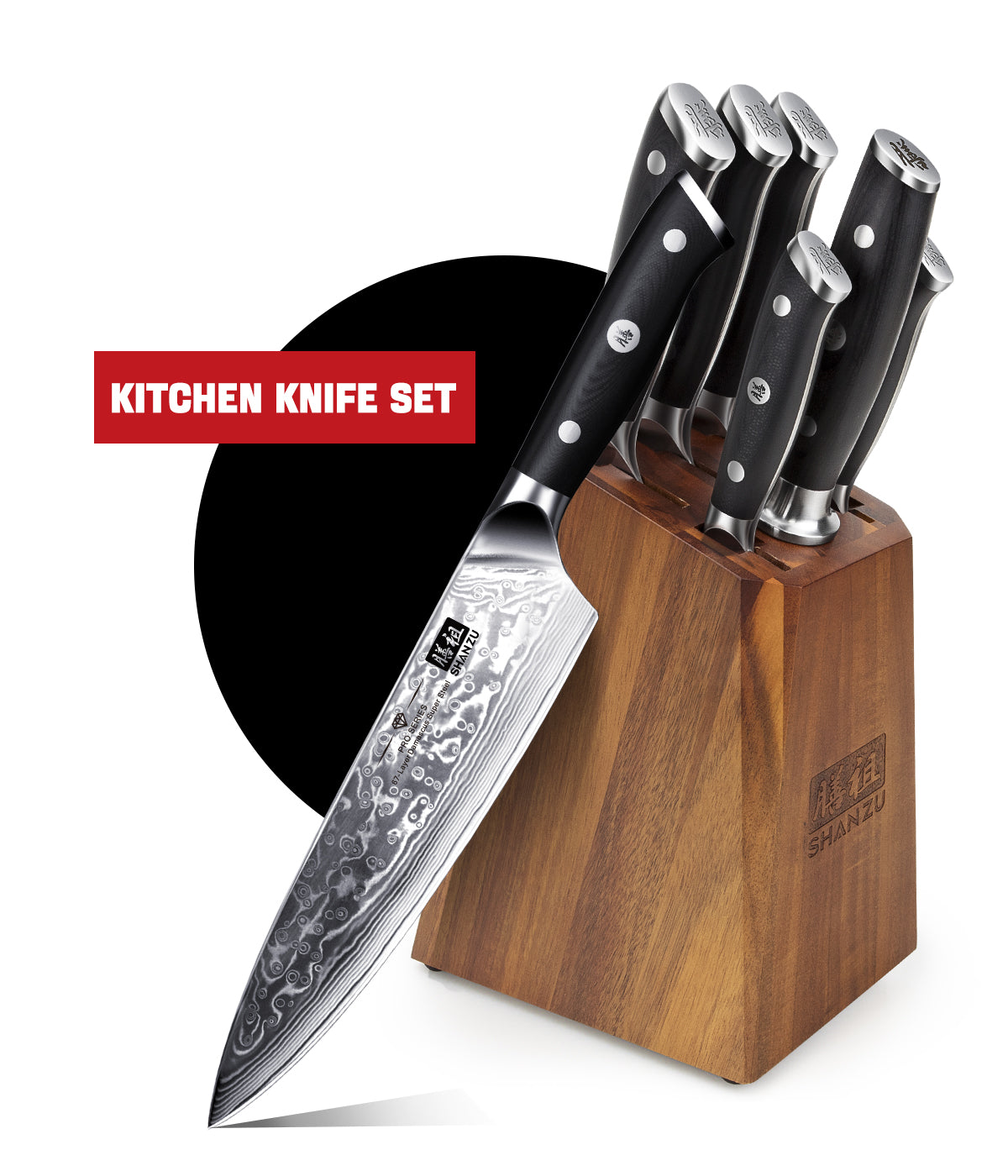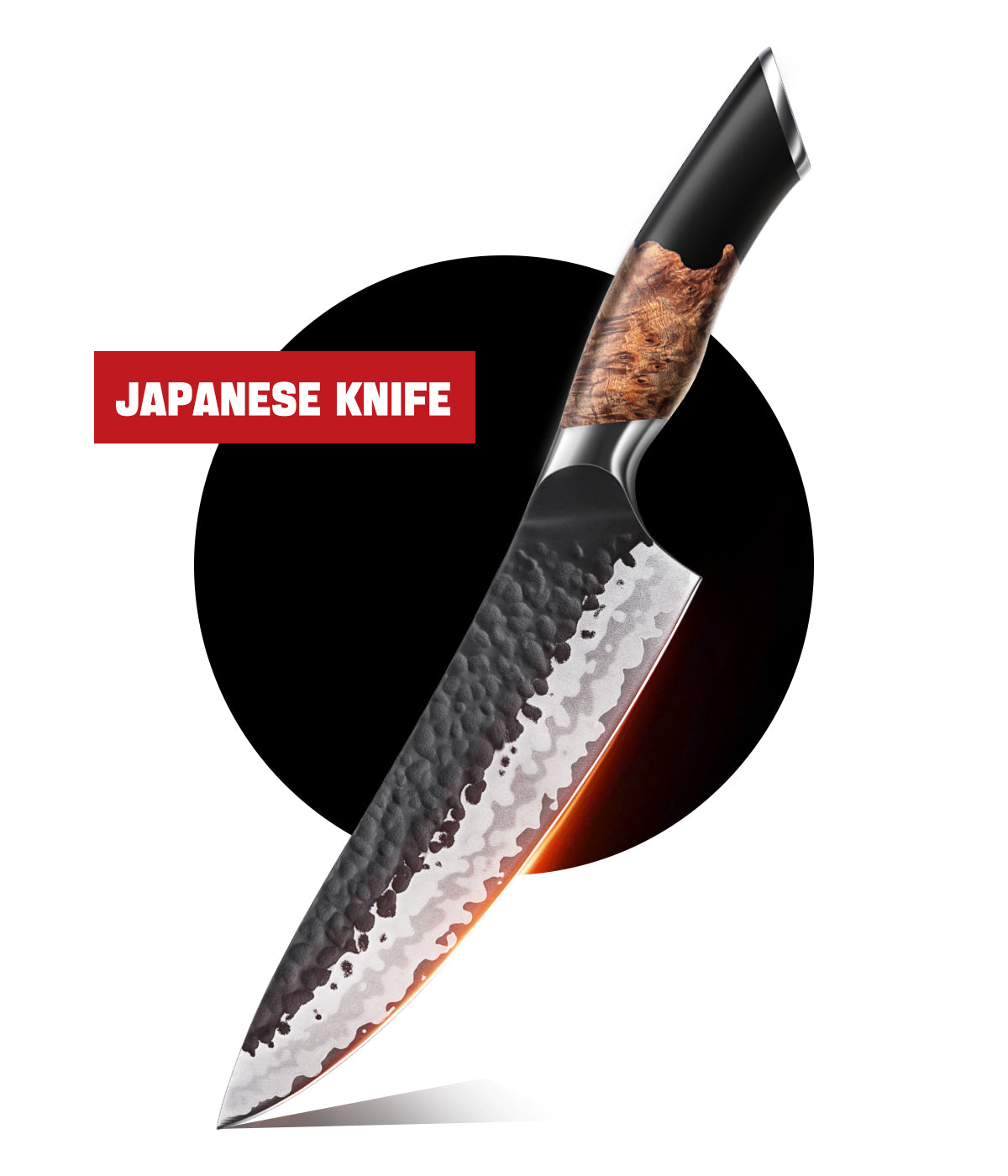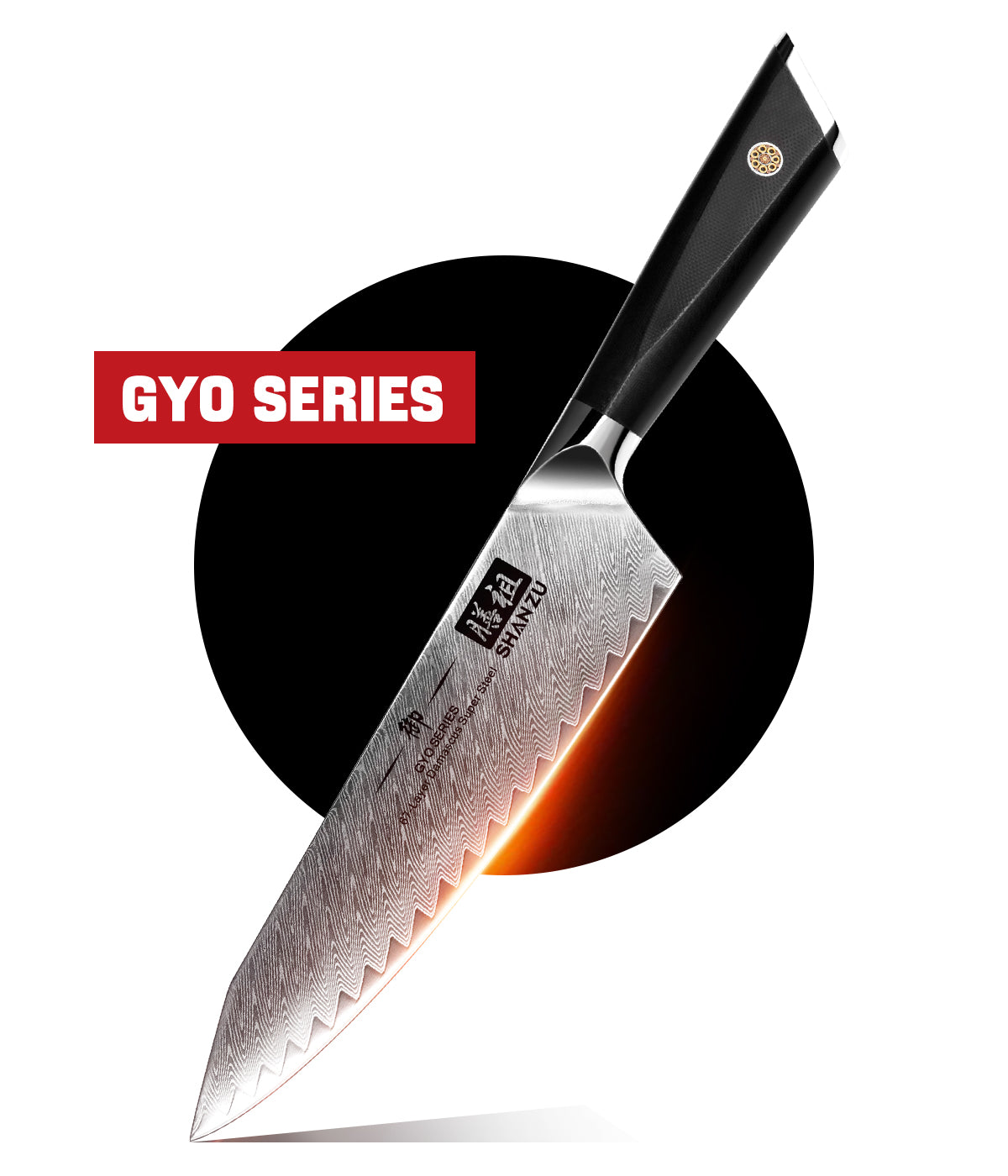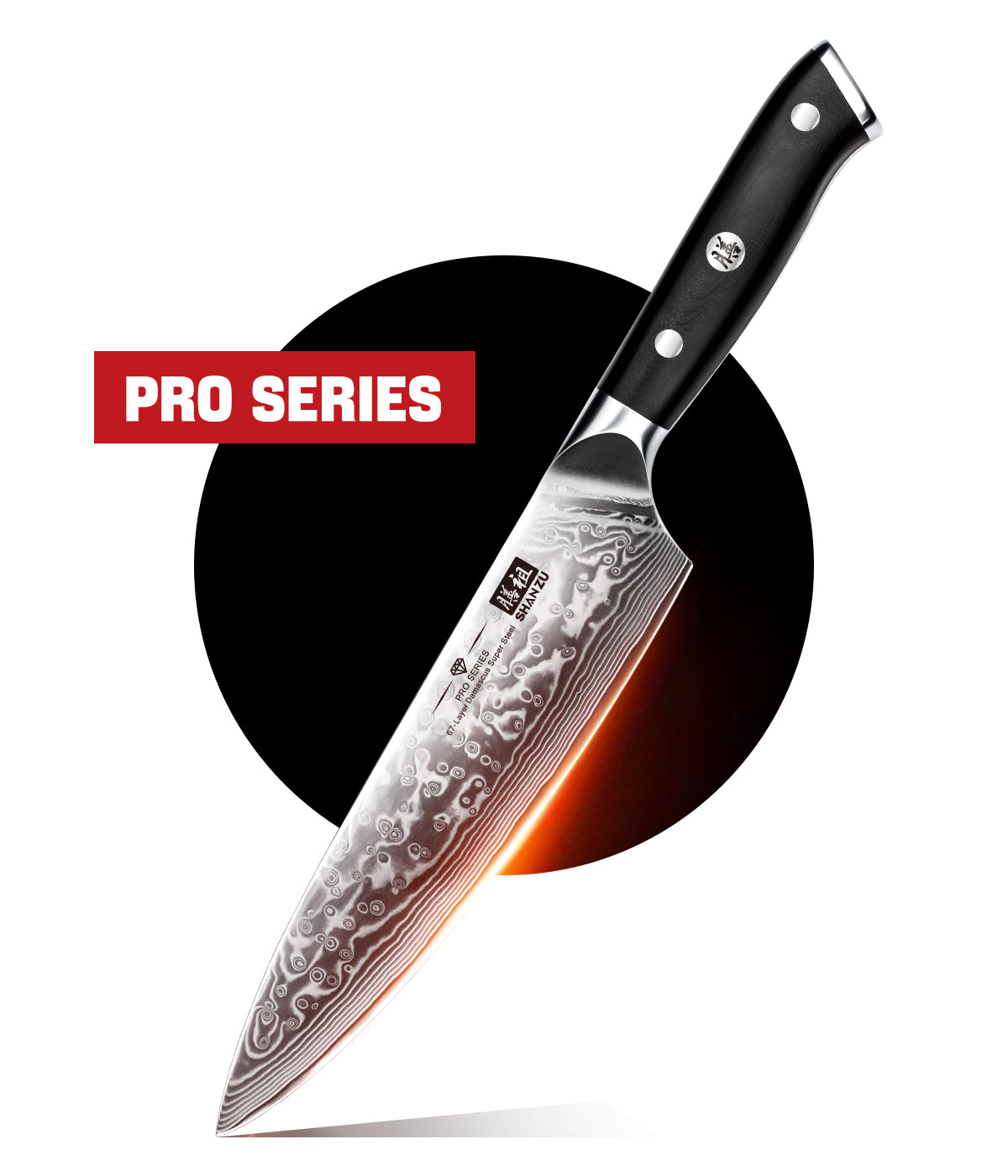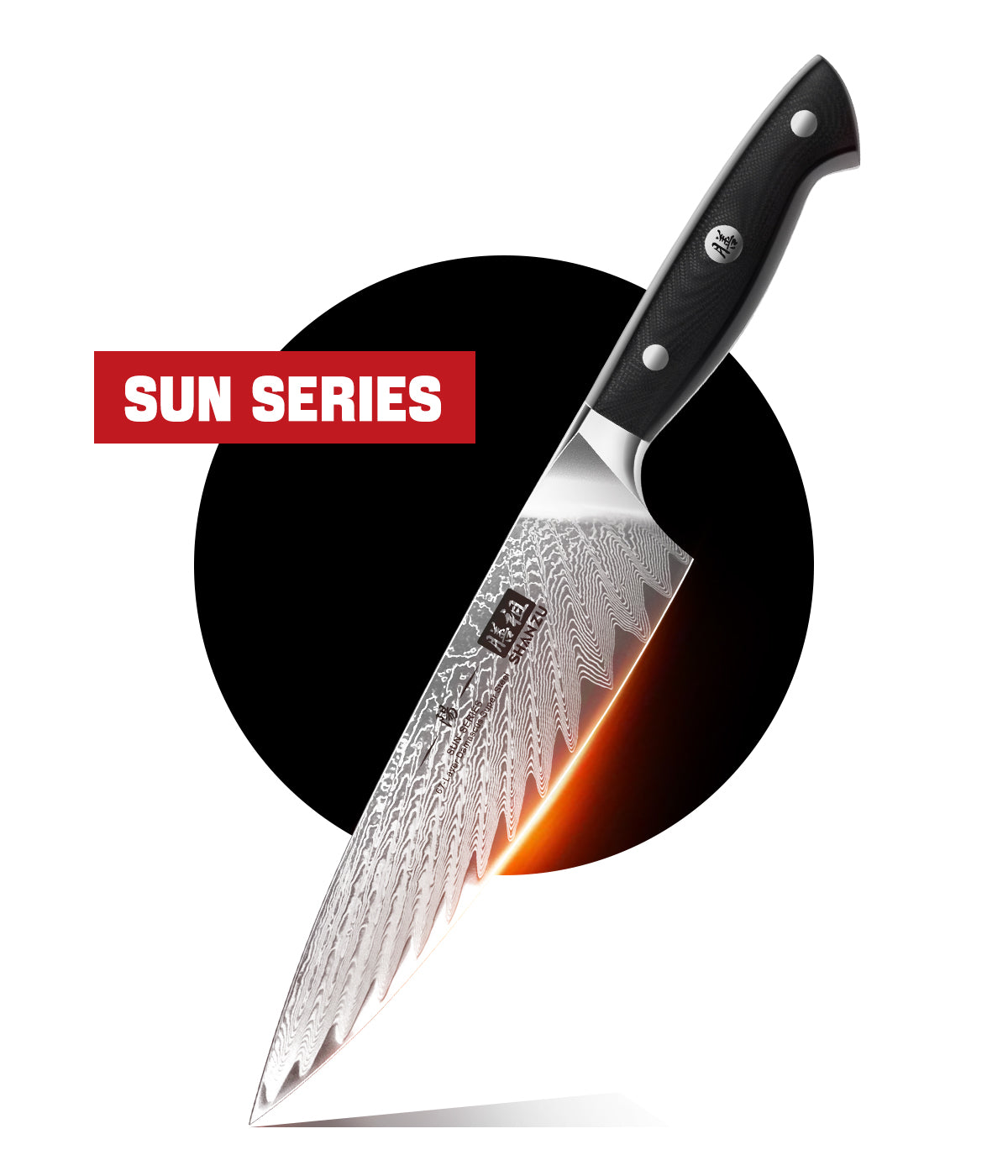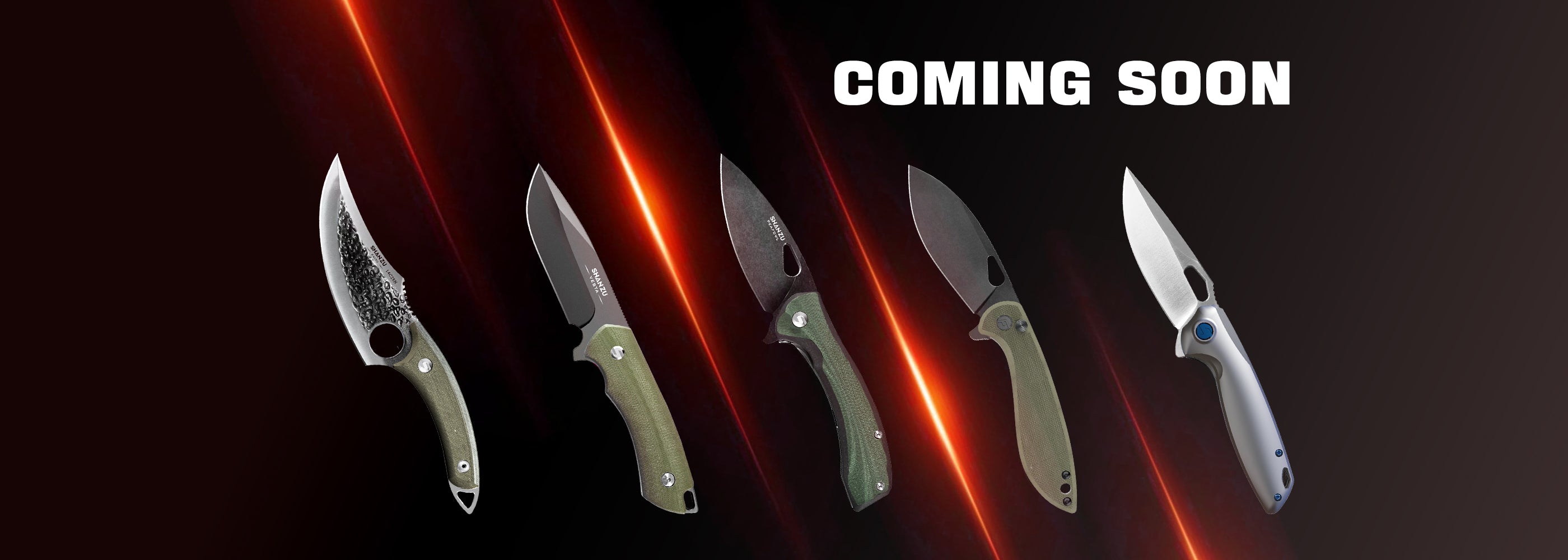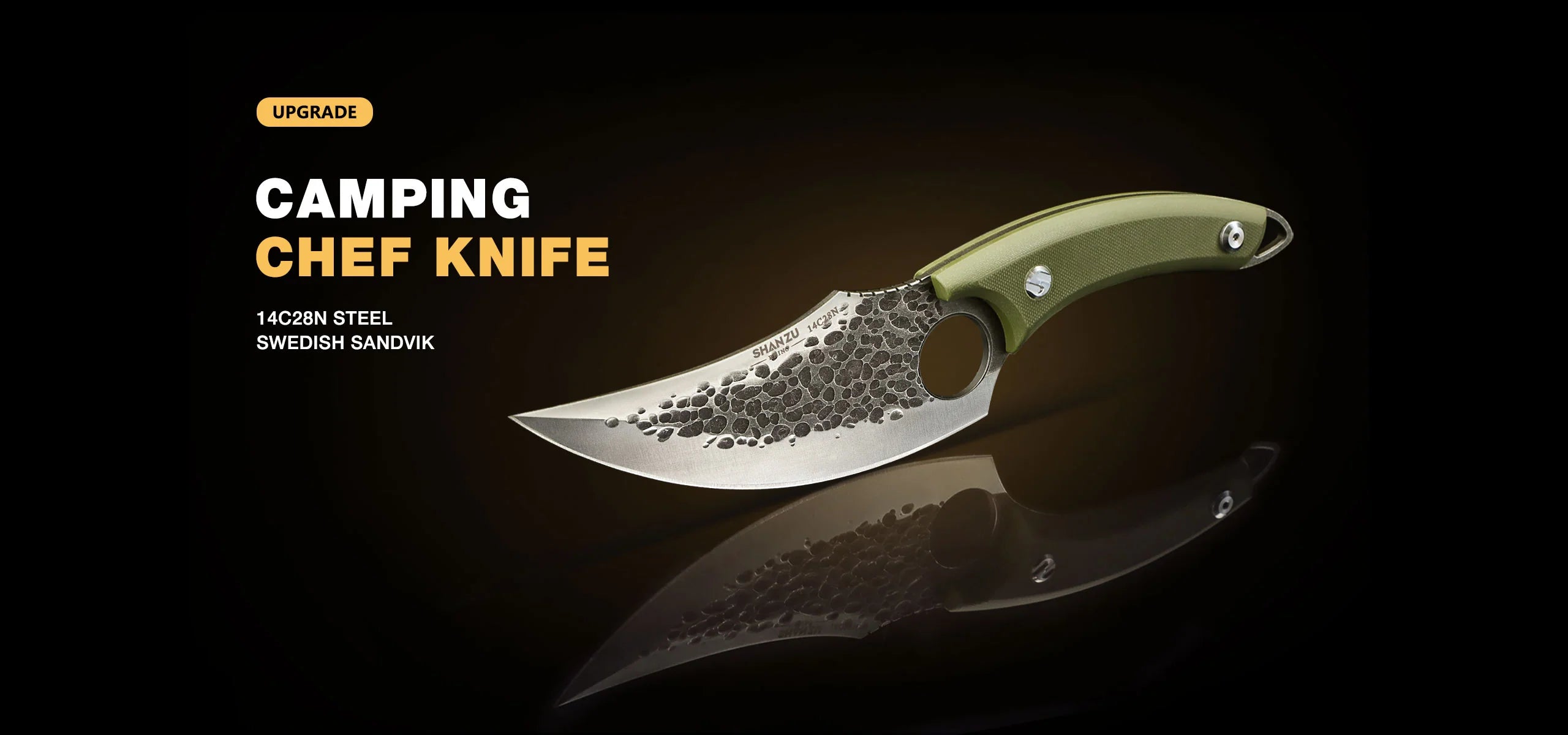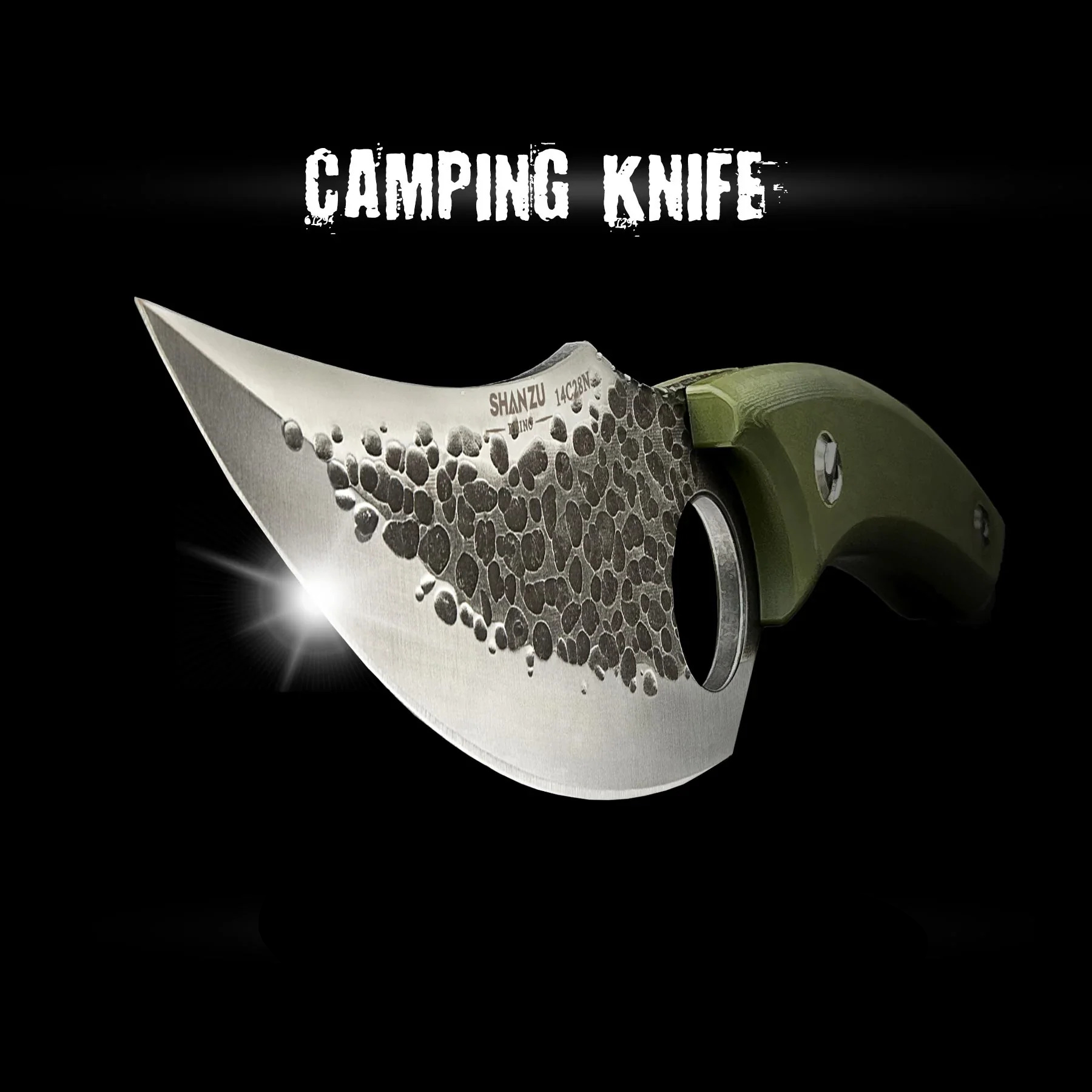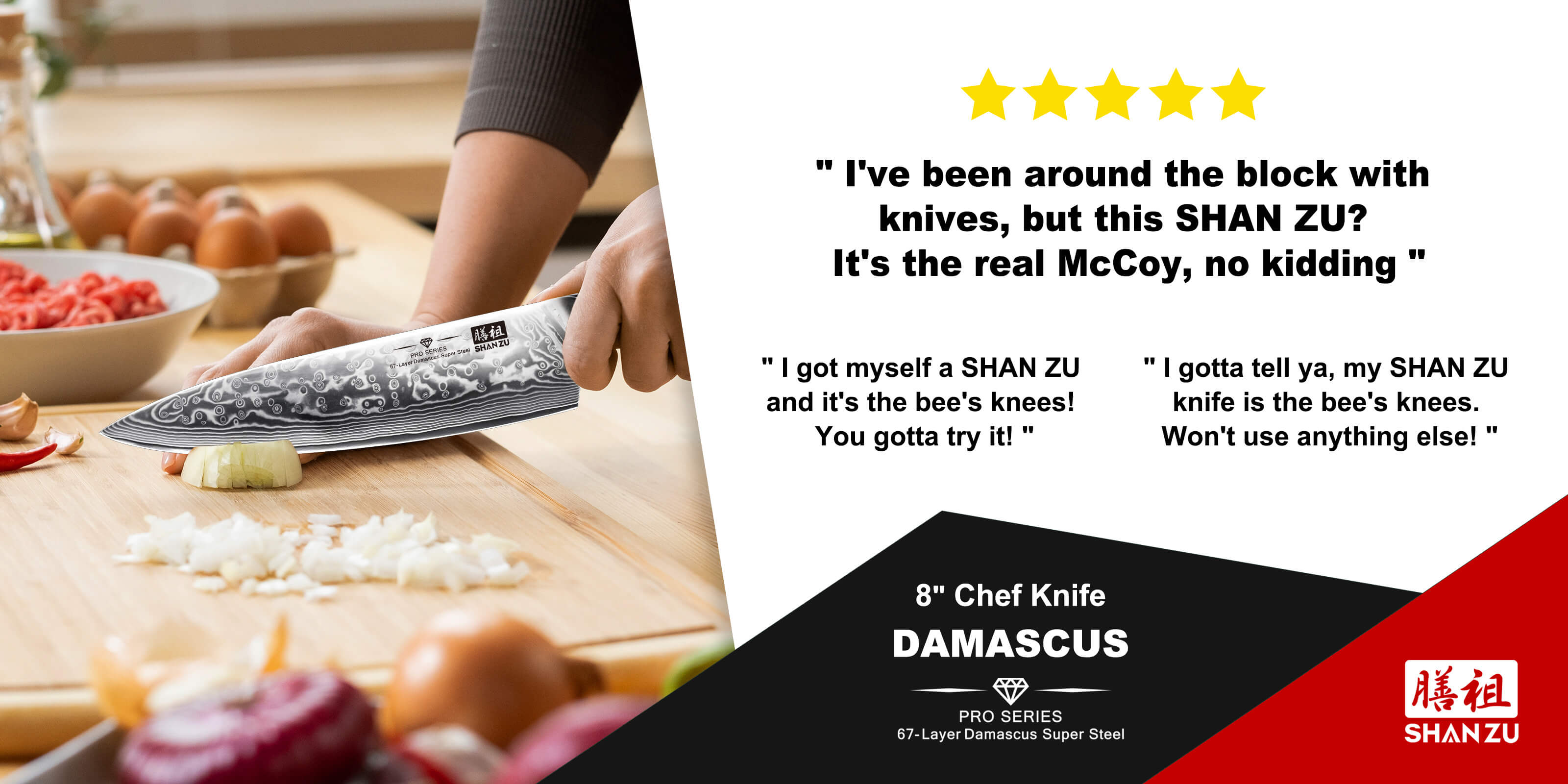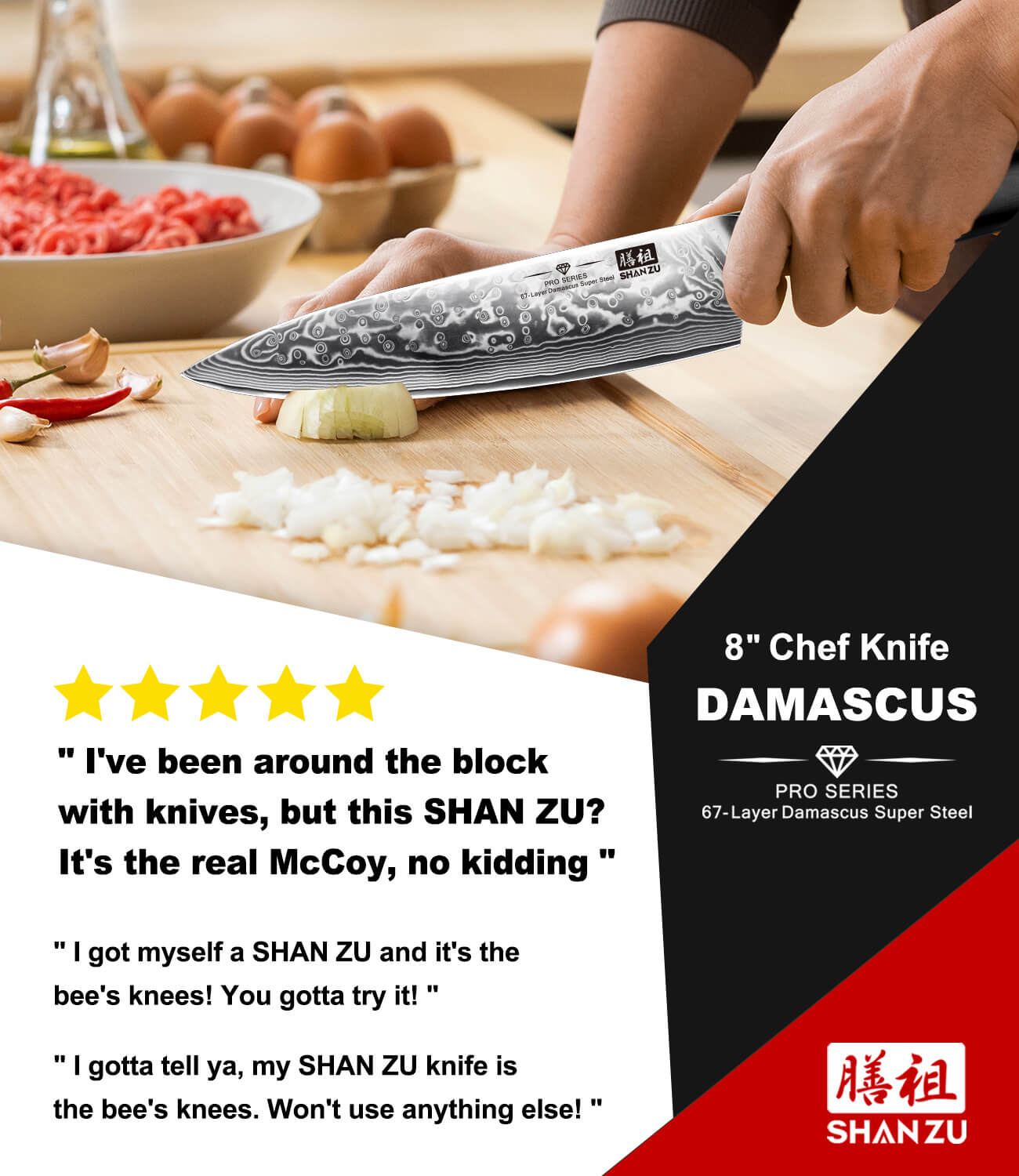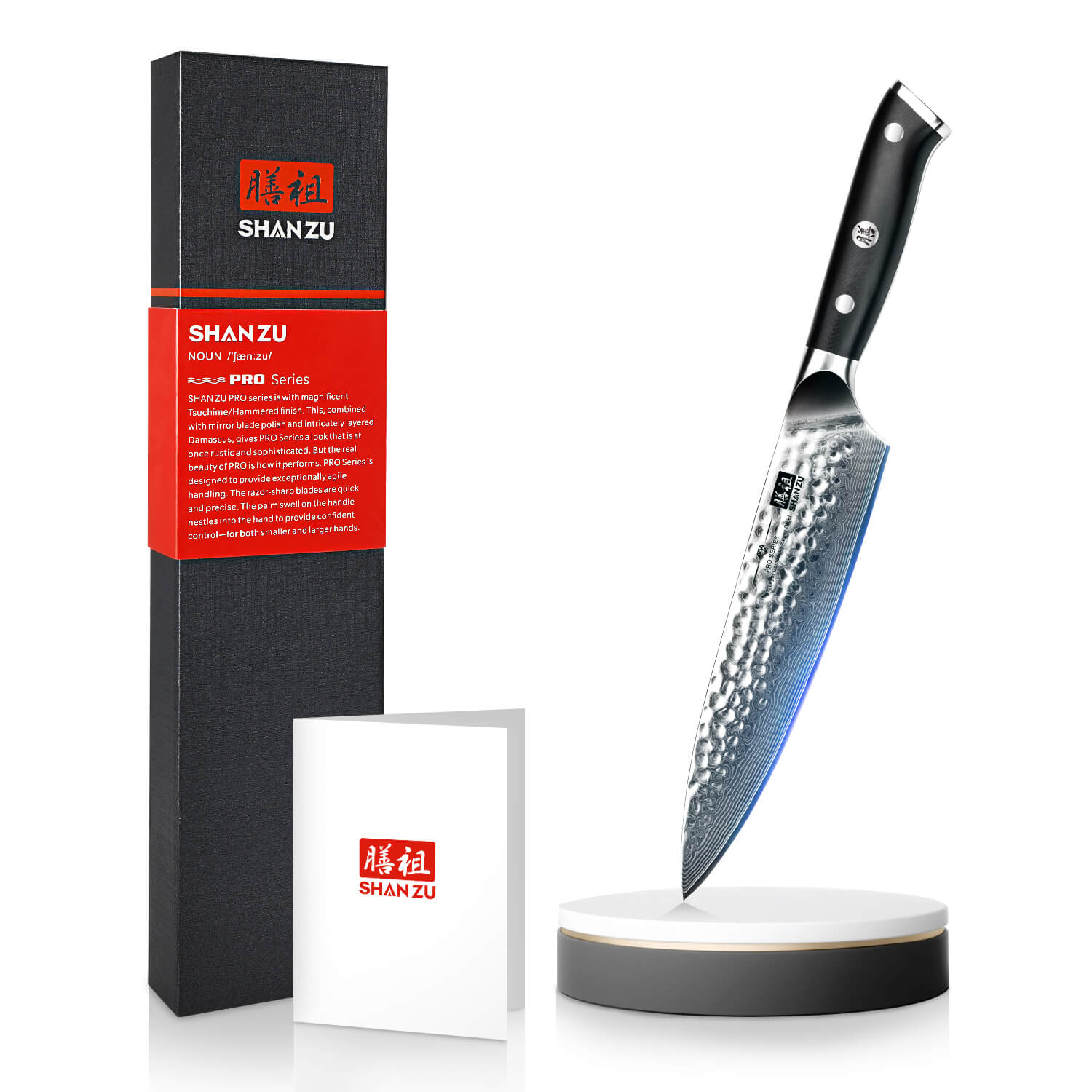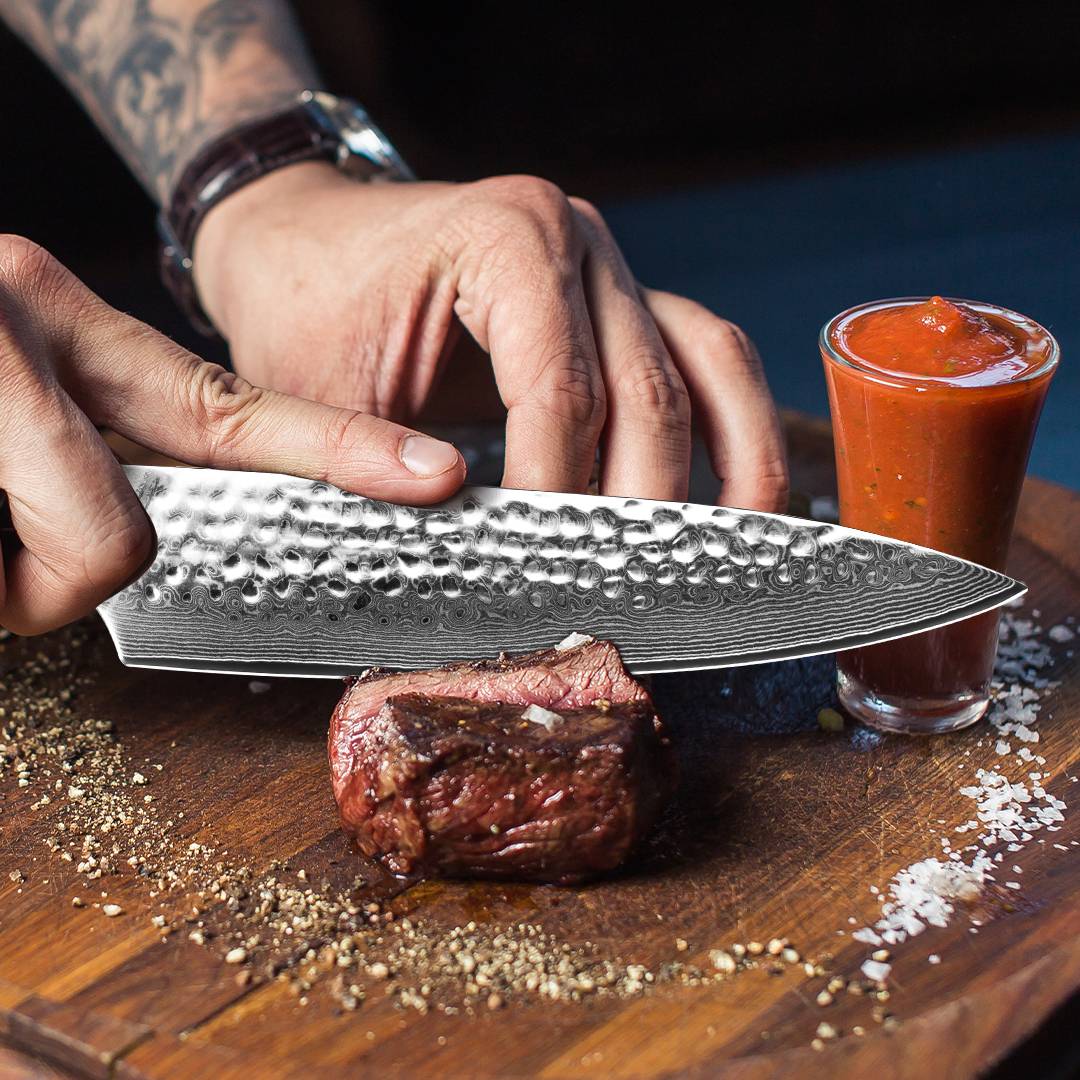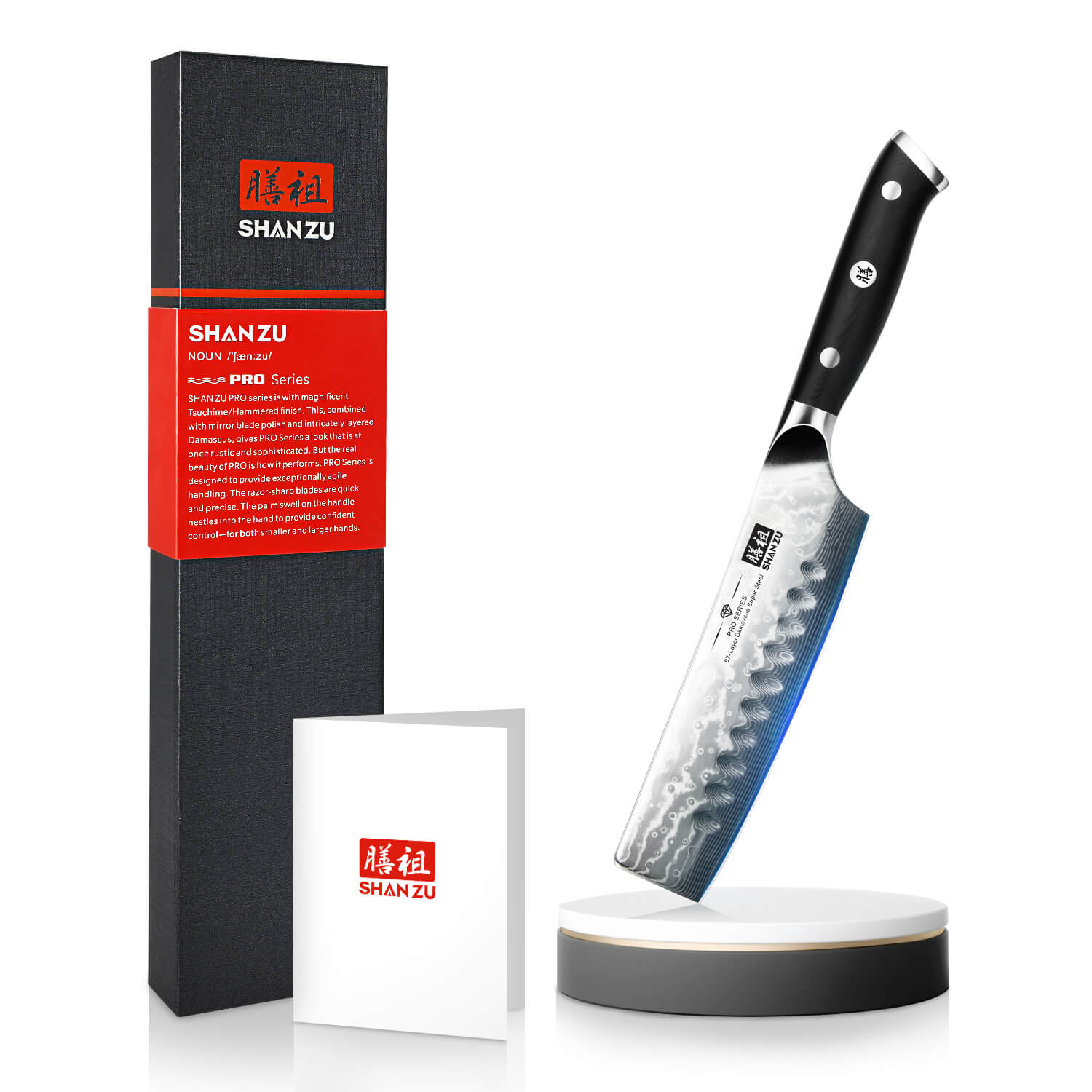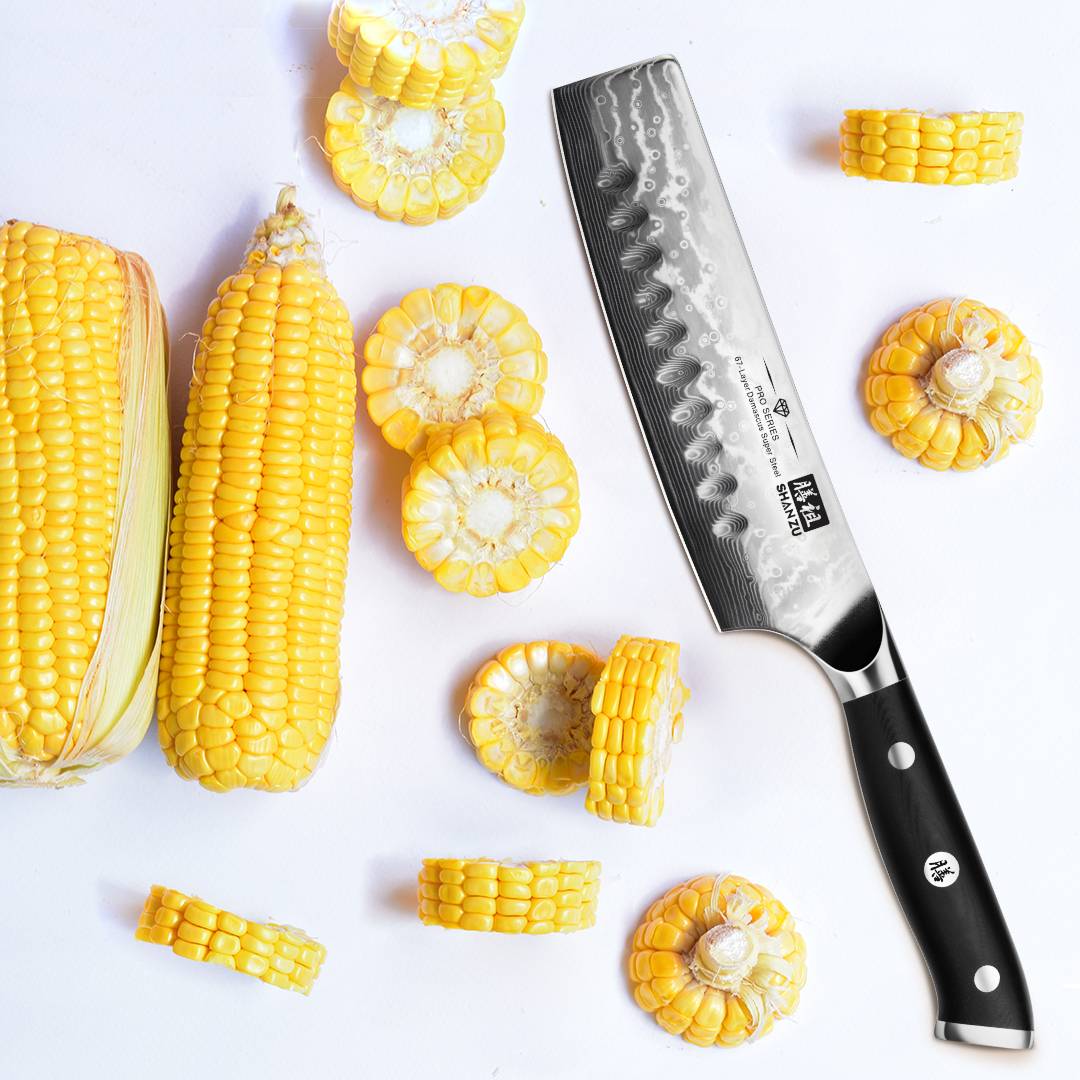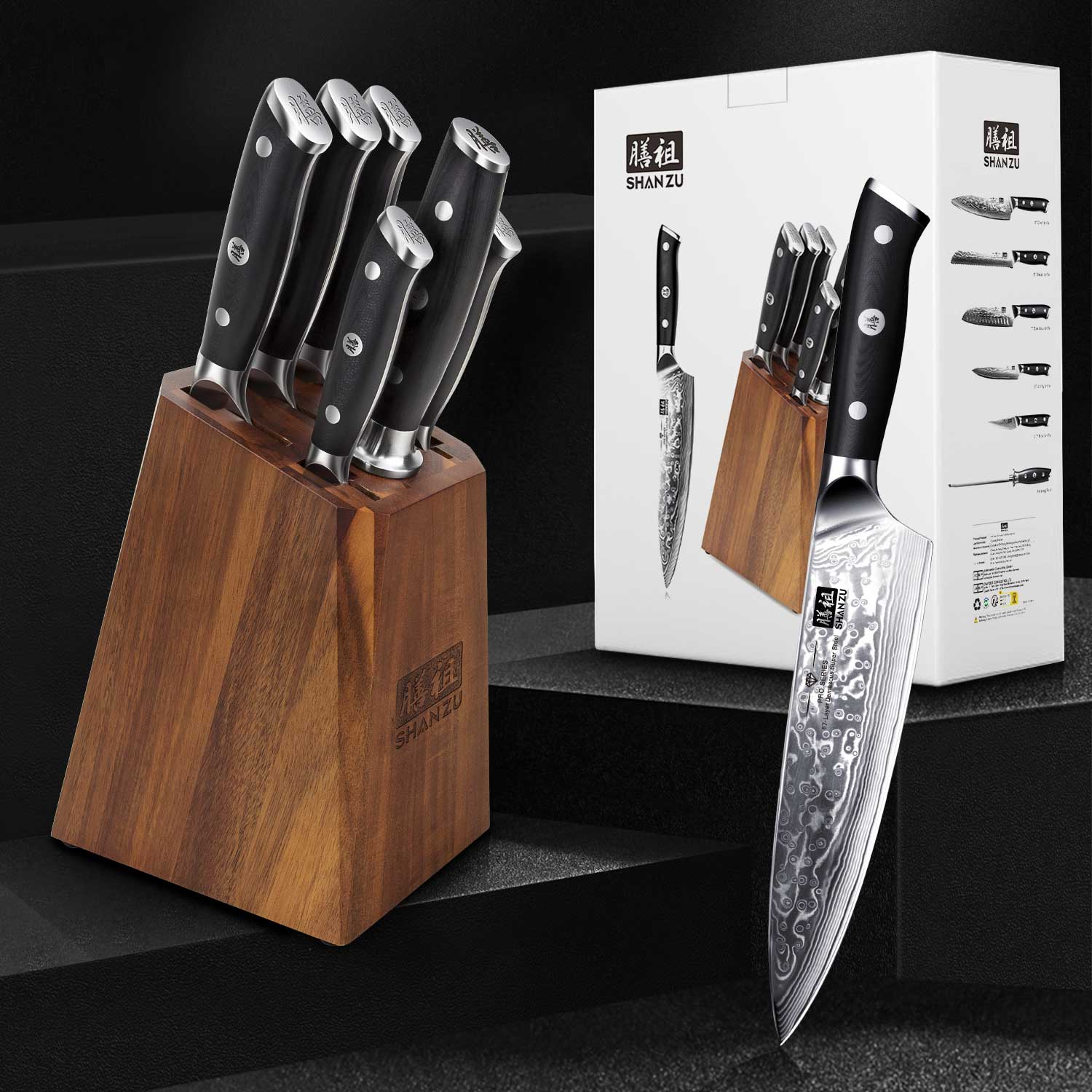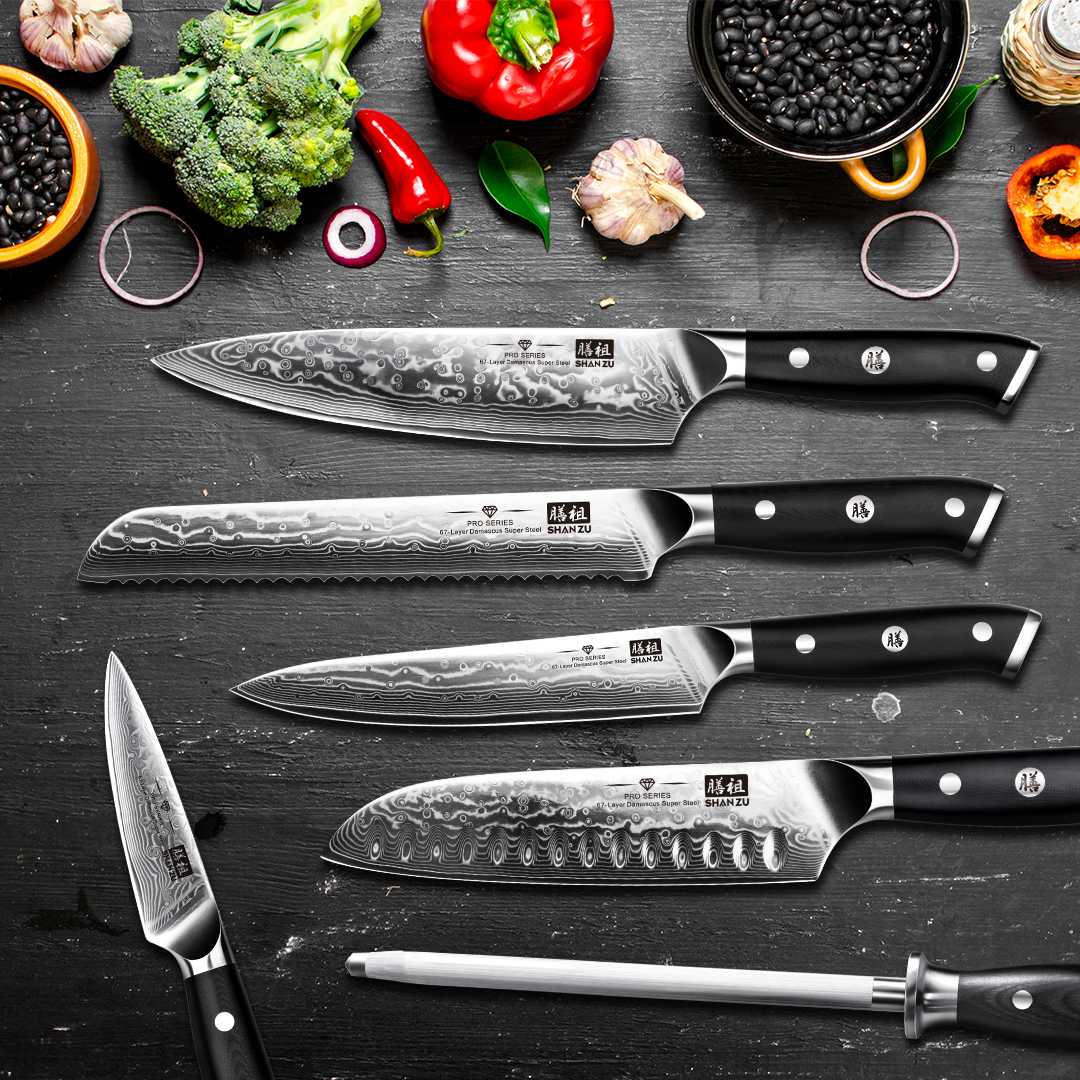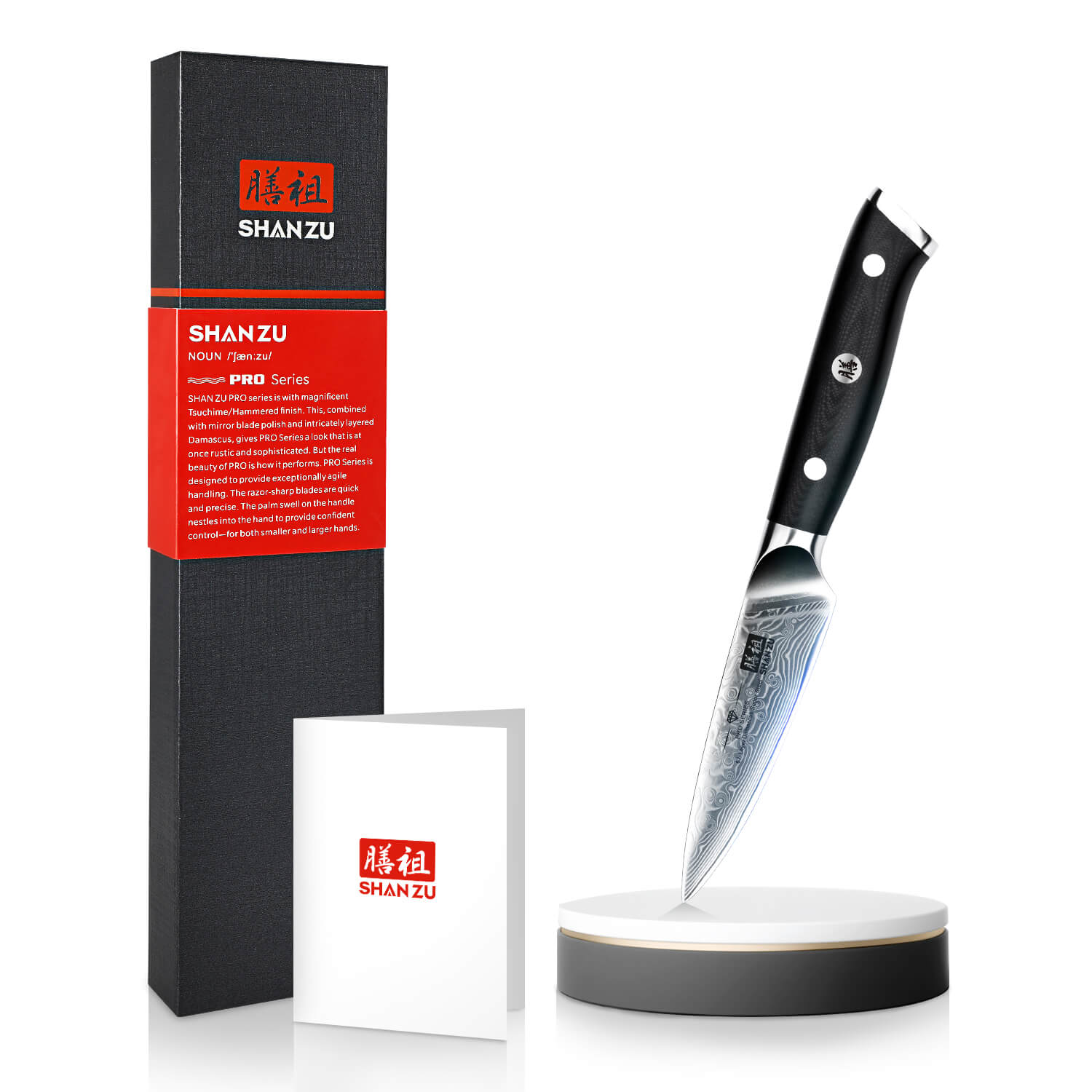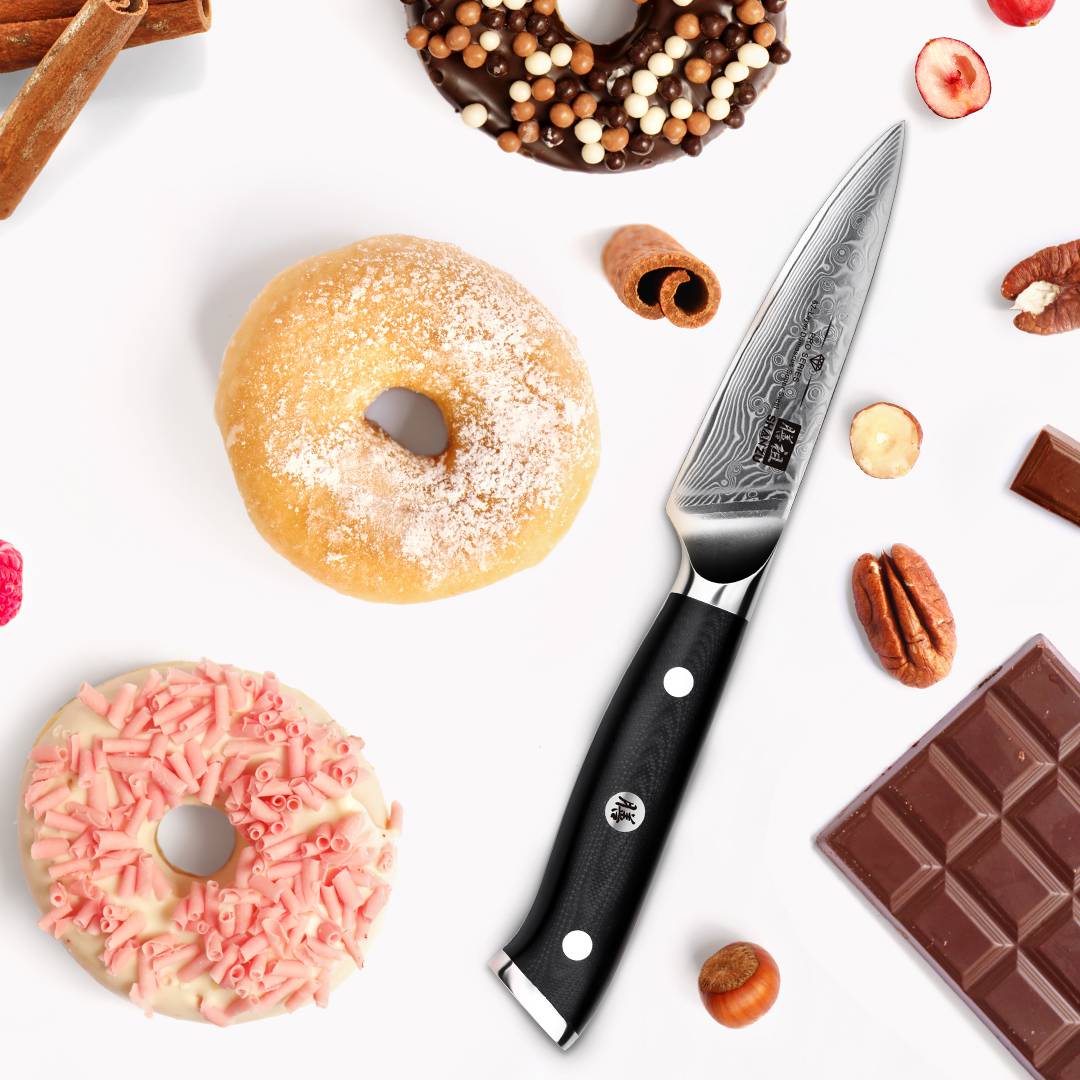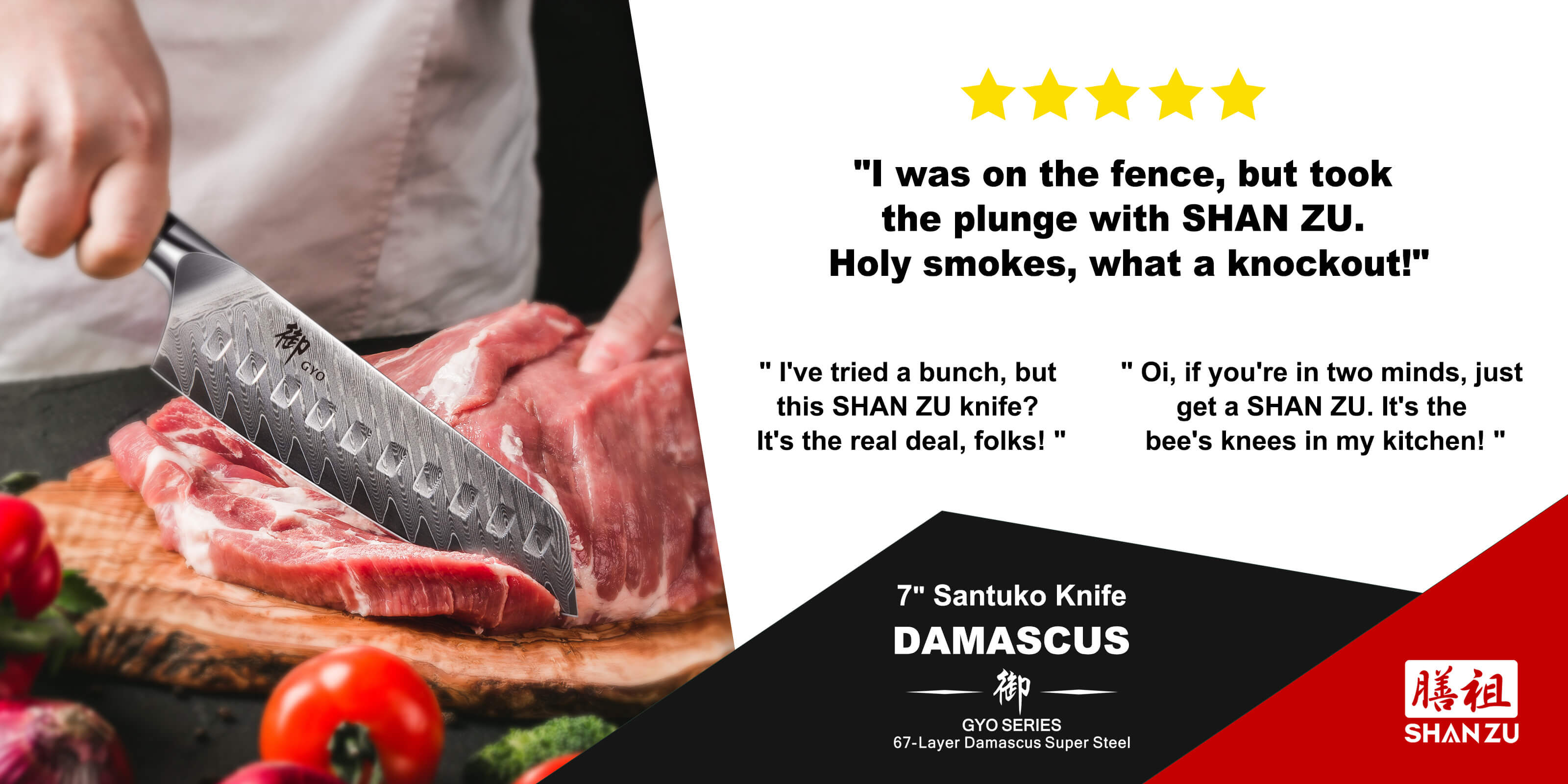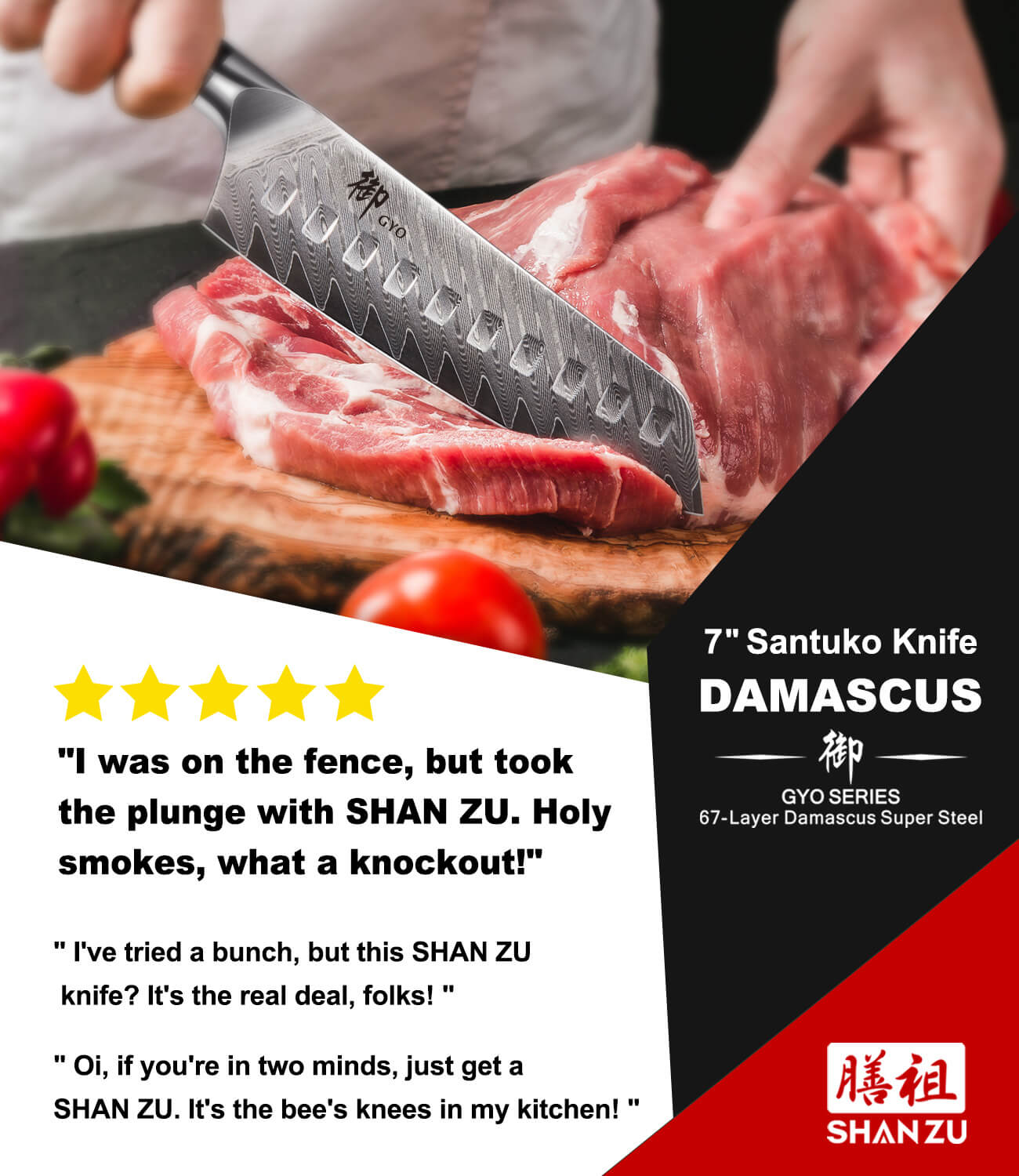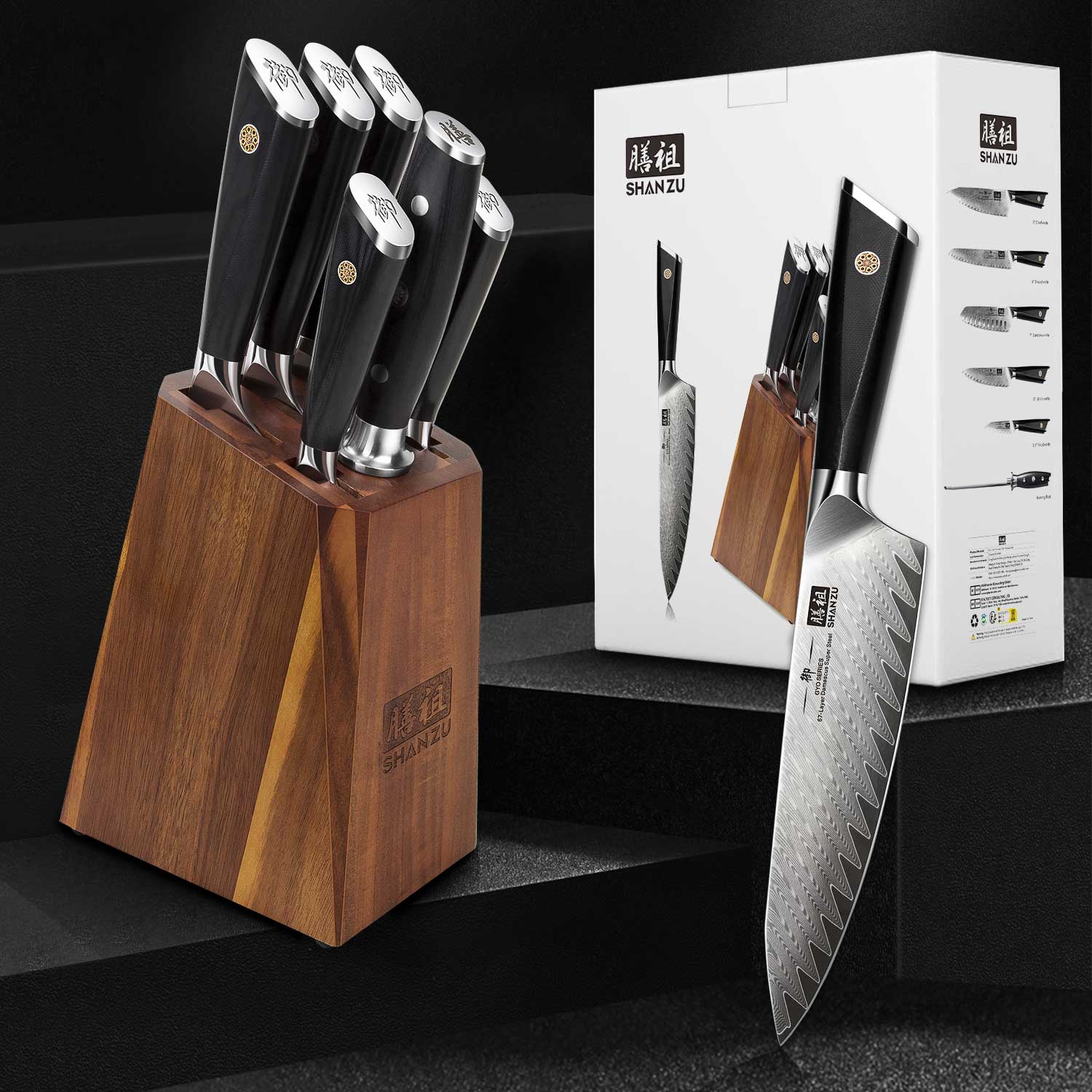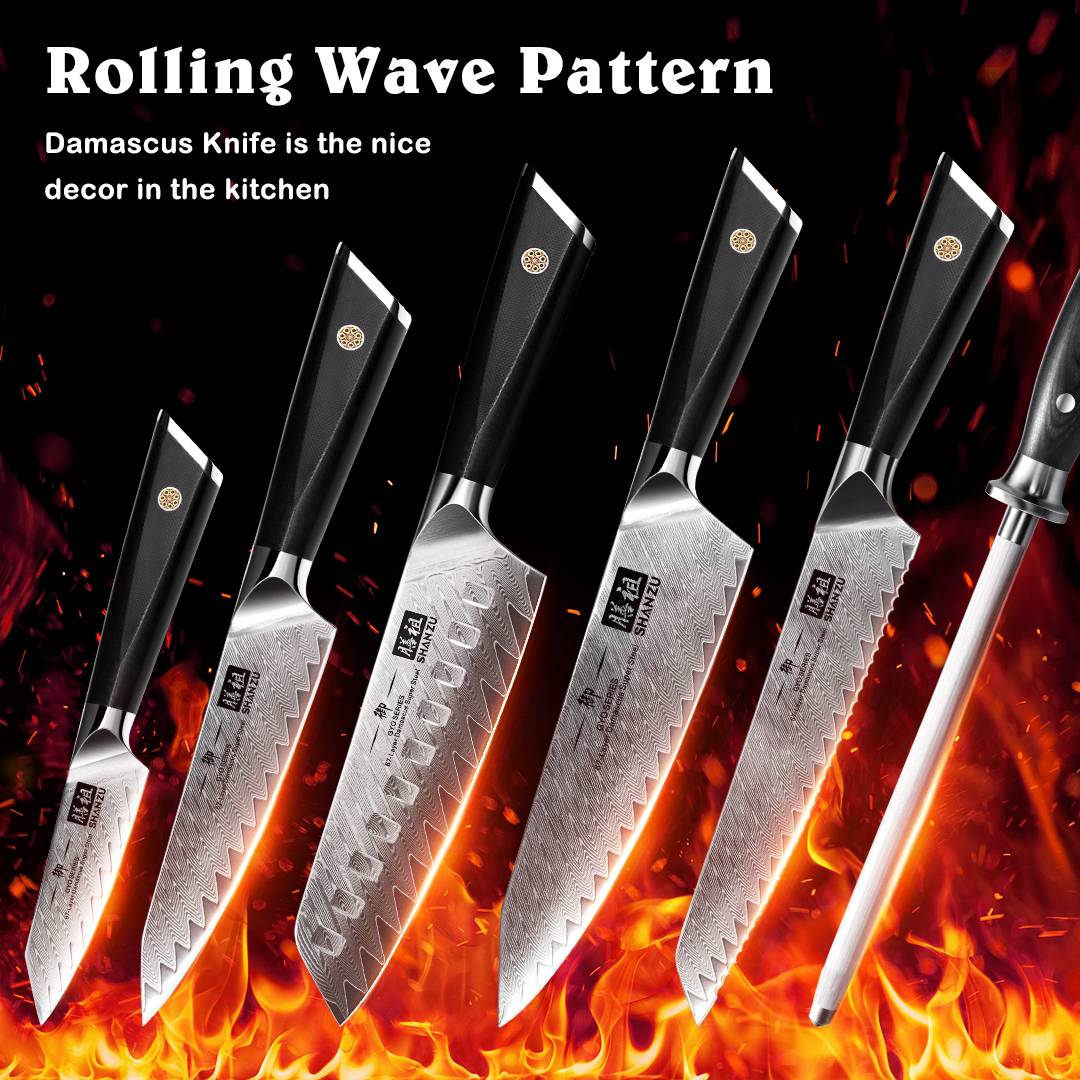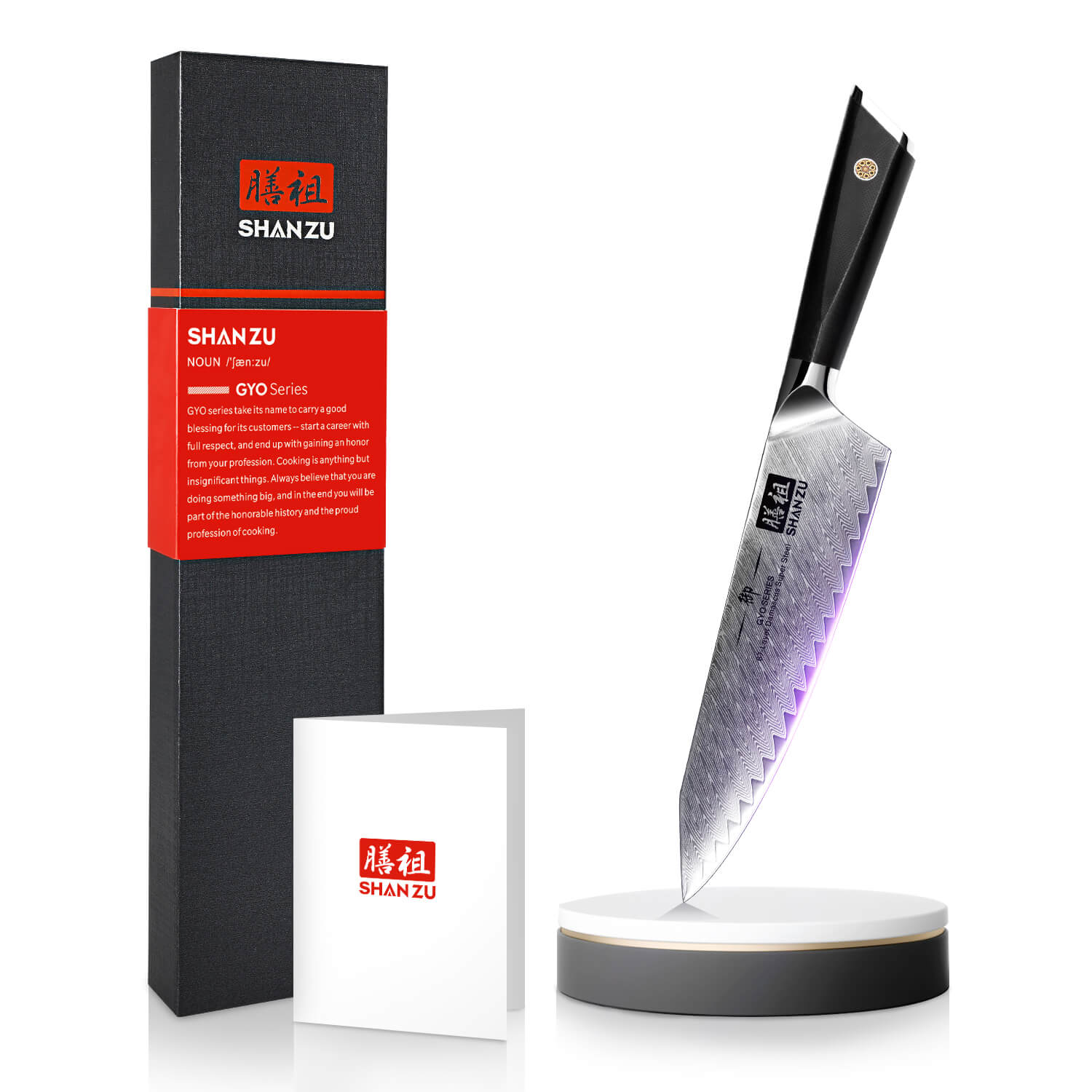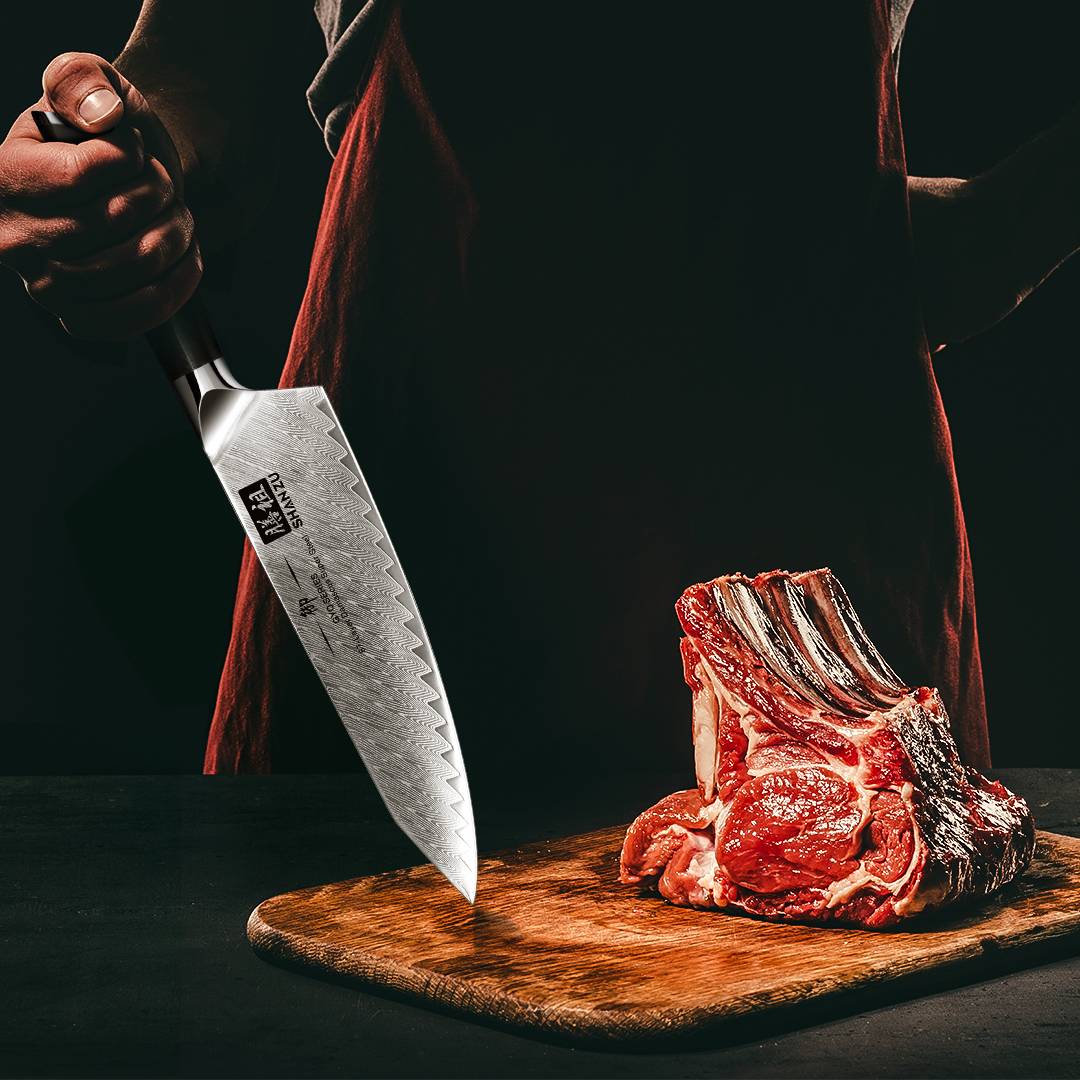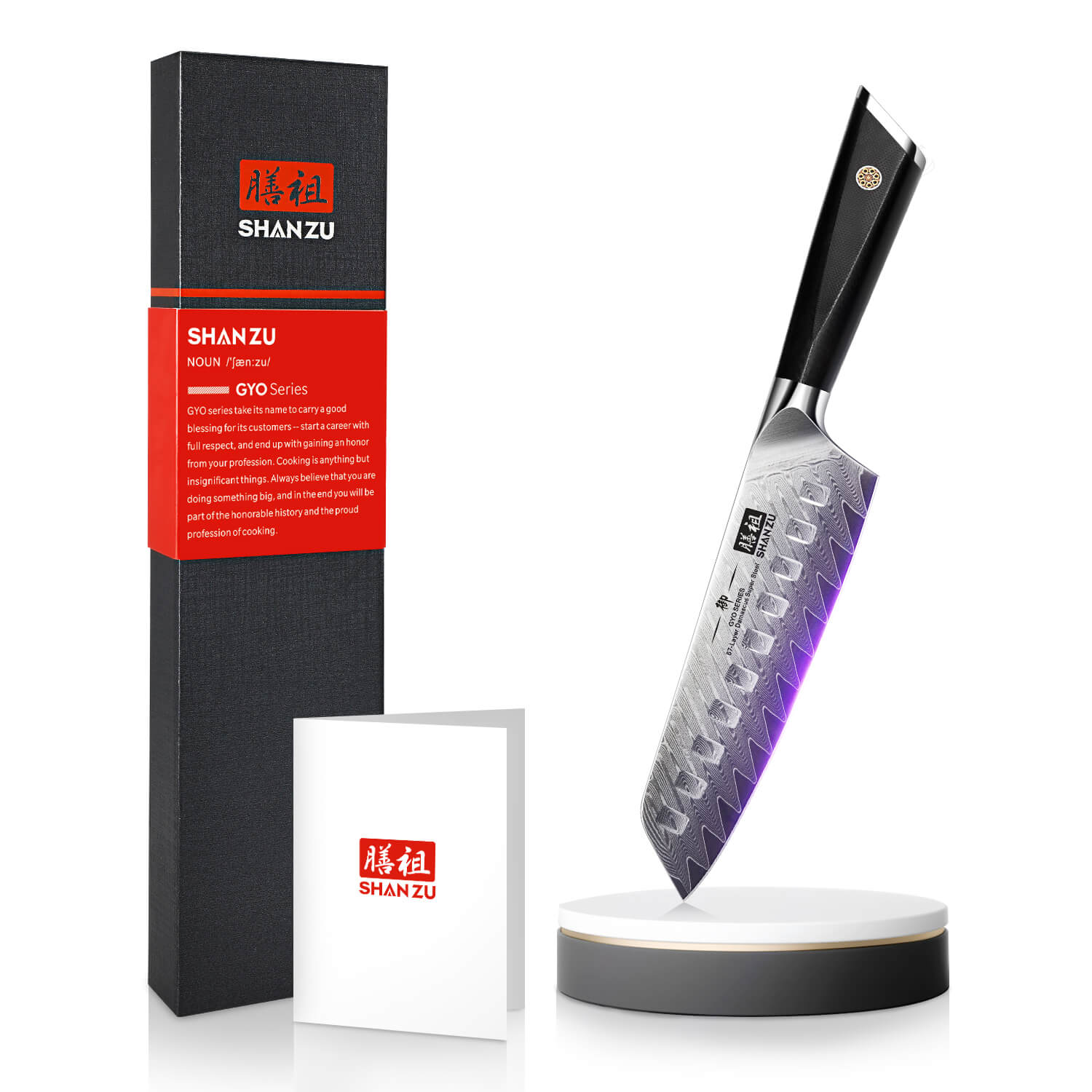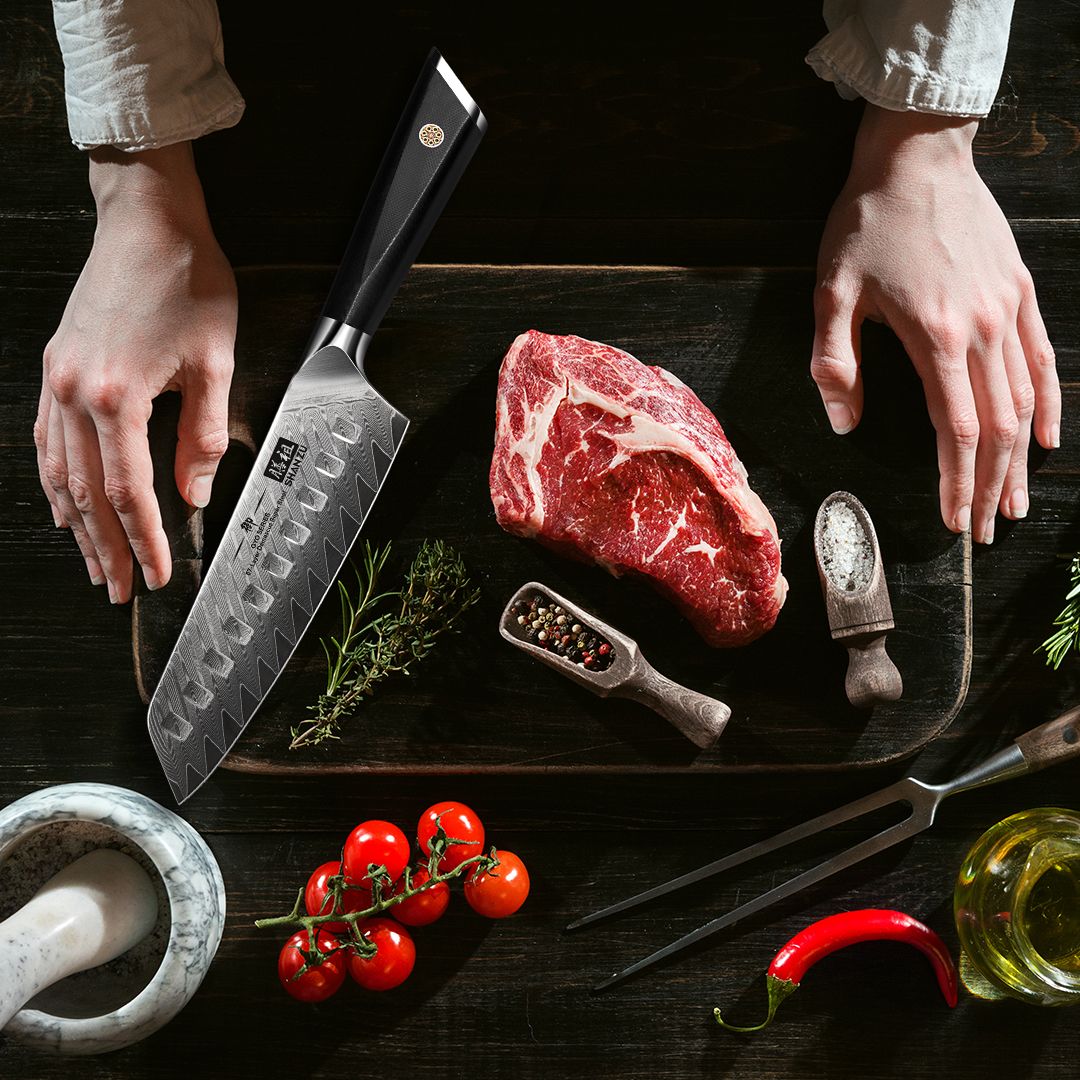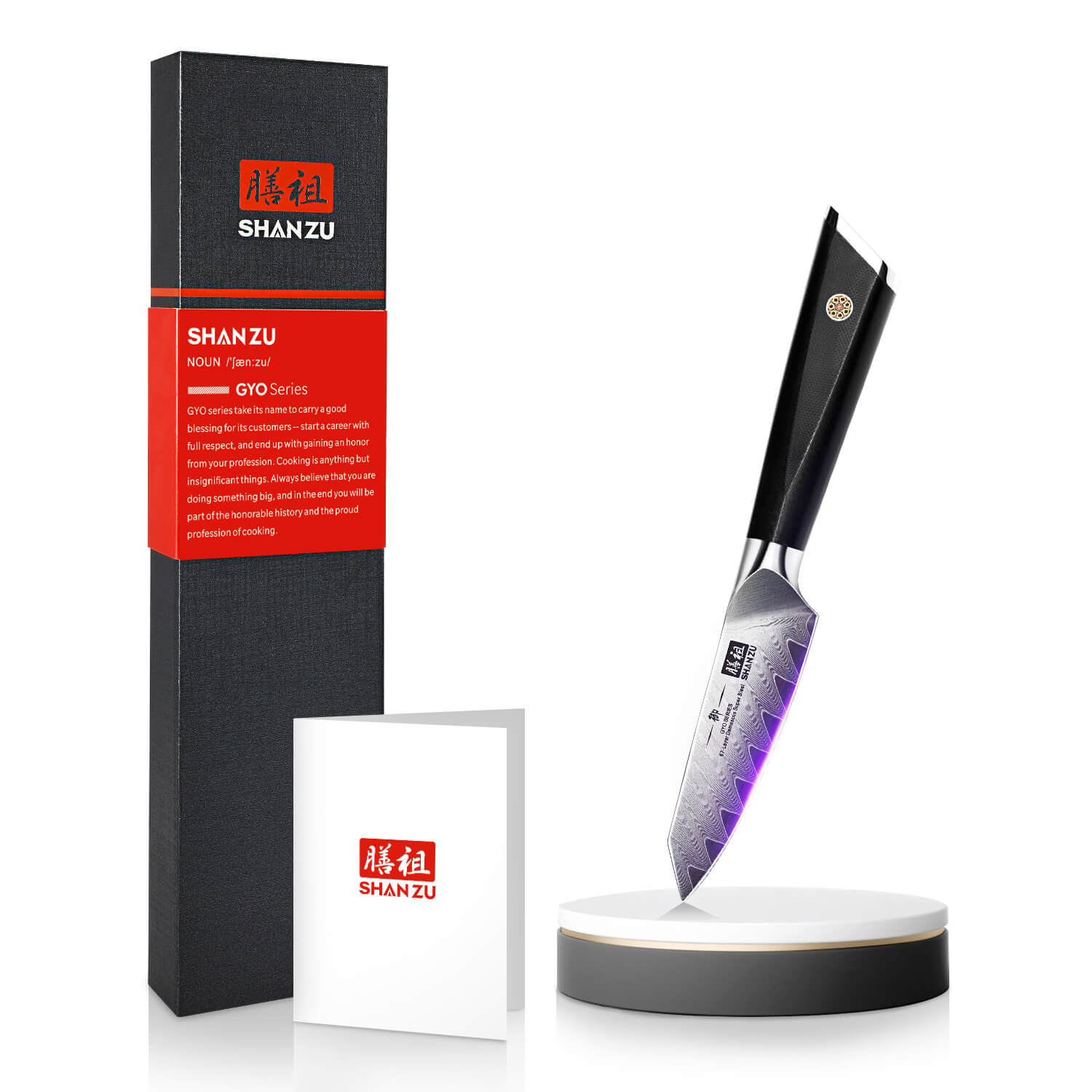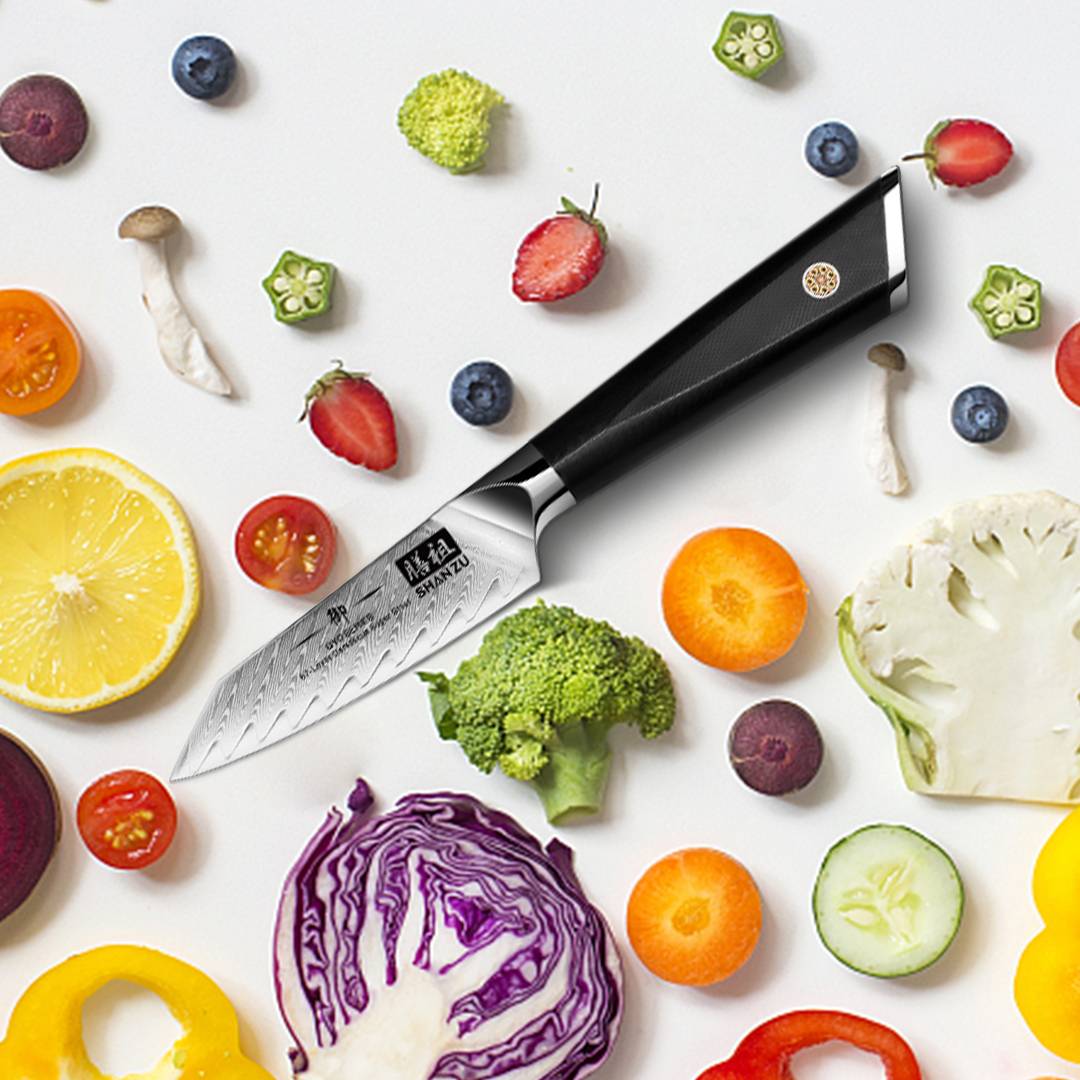
BOOKING SHOW
We're excited to invite you to visit our booth at CALIFORNIA RESTAURANT SHOW, where we'll be showcasing our latest products and innovations. This is a fantastic opportunity to see our offerings up close and meet our team in person.
Booking NowNew Arrvials
$89
Special Price
100%
Swedish Origin 14C28N Steel
SHAN ZU Knives | Pro Series
SHAN ZU Knives | Gyo Series
Damascus Steel/German Steel
SHAN ZU
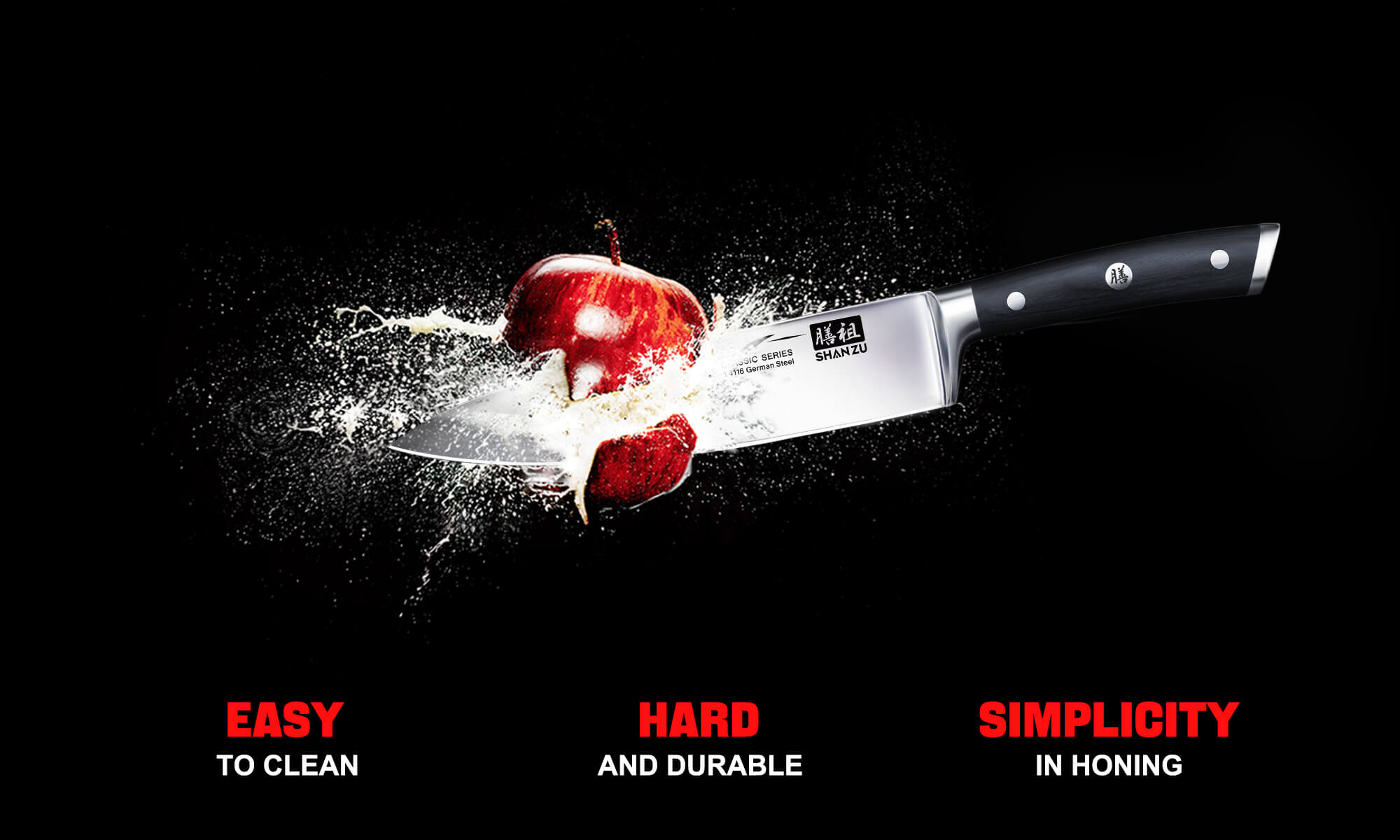
German Steel Knife
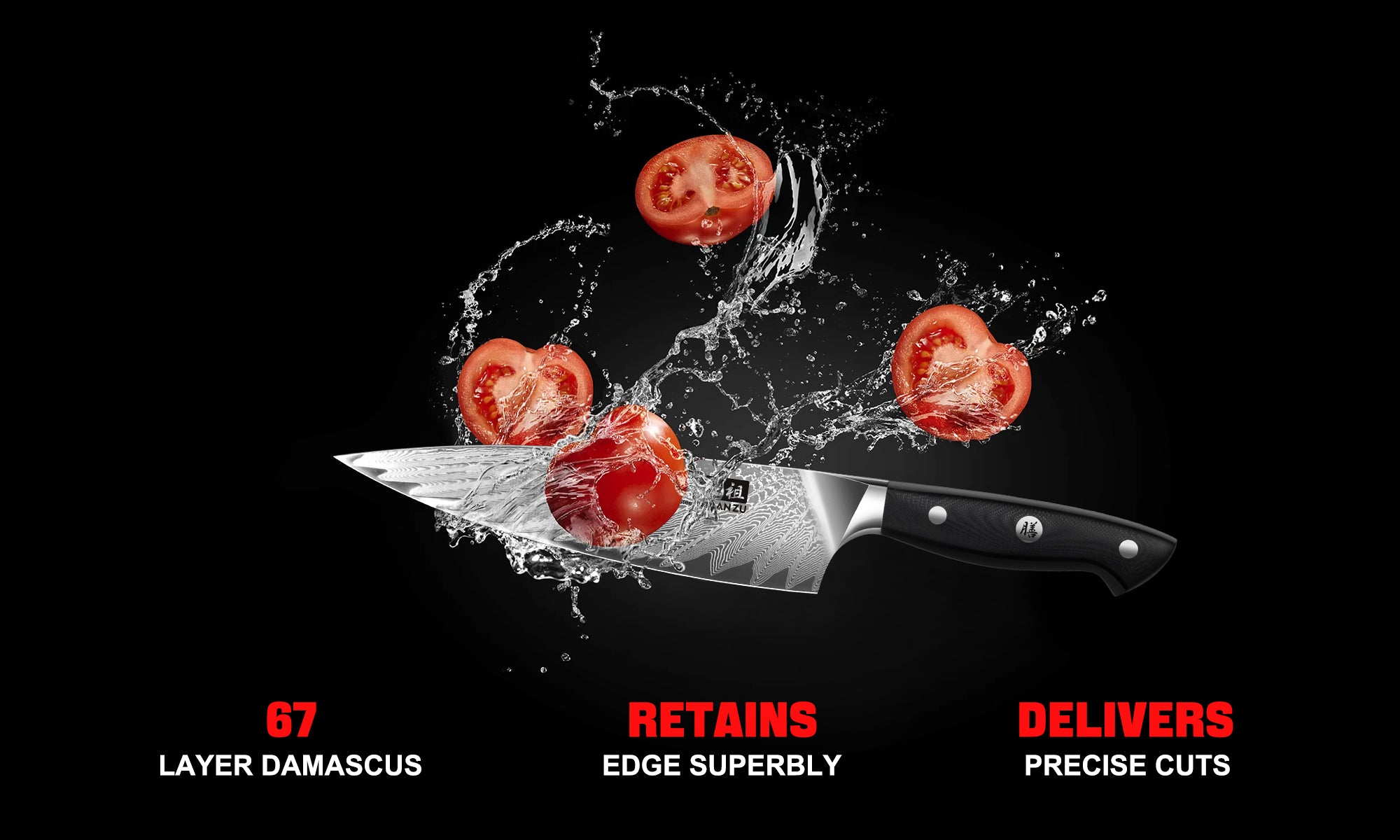
Damascus Knife
FAQ
How to sharpen kitchen knives?
Sharpening kitchen knives is an essential skill to maintain their sharpness and cutting performance. Here are the general steps to sharpen kitchen knives:
- Gather the necessary tools: You will need a sharpening stone or whetstone. There are different types of stones available, such as water stones or oil stones. Choose the one suitable for your knife and follow the instructions that come with it.
- Prepare the stone: If you are using a water stone, soak it in water for the recommended time as specified by the manufacturer. Oil stones may require lubricating oil, so follow the instructions accordingly.
- Hold the knife properly: Hold the knife firmly but not too tight. Ensure a stable grip and keep your fingers away from the blade's edge to prevent accidents.
- Determine the angle: Most kitchen knives have a bevel angle between 15 to 20 degrees. You can use a sharpening guide or visually estimate the angle.
- Start sharpening: Place the knife's edge against the stone at the chosen angle. Apply light pressure and move the blade across the stone in a controlled motion. Maintain a consistent angle throughout the process.
- Sharpen both sides: Alternate between sharpening each side of the blade. Depending on the condition of the knife, you may need to repeat this process several times on each side.
- Check for burrs: After sharpening, check for a burr or a thin metal ridge along the knife's edge. To remove the burr, gently slide the blade's edge along the stone with a lighter pressure.
- Hone the knife: To further refine the edge and remove any remaining burrs, use a honing steel or a leather strop. Draw the knife's edge across the honing steel or strop several times on each side.
- Test the sharpness: Carefully test the knife's sharpness by slicing through a piece of paper or gently cutting a tomato. If the blade cuts smoothly and effortlessly, it is properly sharpened.
Remember to exercise caution while sharpening knives to avoid accidents. If you are unsure or uncomfortable sharpening knives yourself, consider seeking assistance from a professional or attending a knife sharpening workshop.
Are SHAN ZU Knives good?
So far, SHAN ZU most of the knives have been the best sellers in Europe for 10 years. We offer the best quality, economical price, and best customer service. Our glowing customers aren’t a coincidence — they’re the result of our commitment to quality, starting with the primary materials we use.
At SHAN ZU, we are committed to producing professional-level knives that are both beautiful and functional. To achieve this goal, we start by carefully selecting the highest quality steels available, which serve as the foundation for our knives across all of our different series. By using premium materials, we are able to create knives that are not only sharp and durable but also offer exceptional performance and precision. Whether you are a professional chef or a home cook, you can trust SHAN ZU knives to deliver the excellence you demand in your cutting tools.
Where are SHAN ZU knives manufactured?
Every single one of our SHAN ZU knives is painstakingly assembled by expert bladesmiths in a state-of-the-art facility within a city that has a renowned knife crafting tradition dating back over 1400 years.
The history of knife making in Yangjiang can be traced back to the Tang Dynasty (618-907 AD) when the town was known for producing iron and steel tools. Over time, the town's artisans began to specialize in knife making, and by the Song Dynasty (960-1279 AD), Yangjiang had become one of China's leading centers for knife production. The Knives produced during this era quickly gained a global reputation for their exceptional sharpness, innovative design, and remarkable durability. The knives earned numerous accolades in national knife competitions and received recognition at the World Expo.
Today, Yangjian holds the title of National Capital of Knives and Scissors, exporting to more than 100 countries and accounting for 60% of all knife product exports in China. SHAN ZU believes the knives we create are made to empower your creative journey and, in some cases, take your professional career to the next level.

